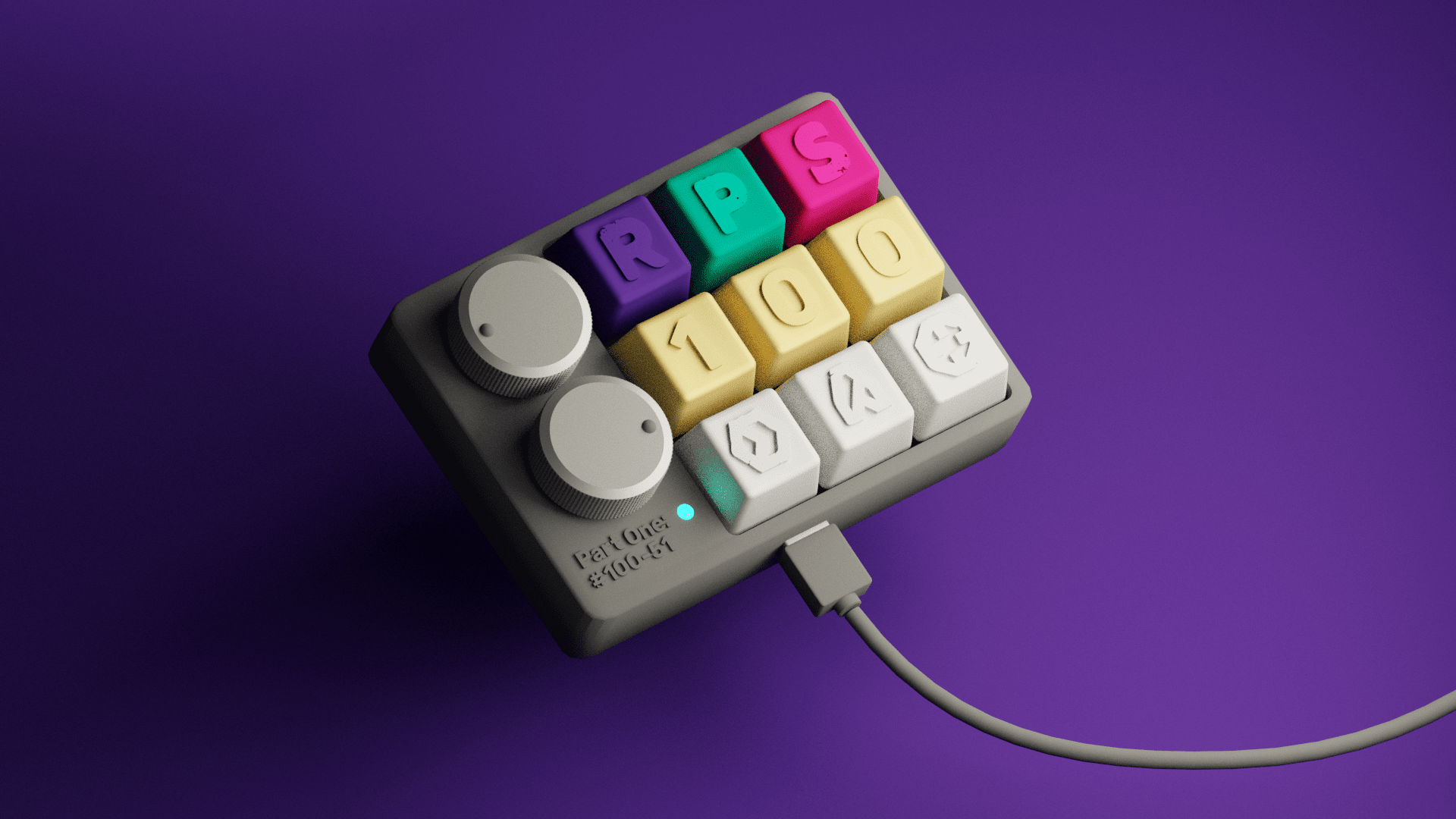Products You May Like
Welcome to the 2022 edition of The RPS 100, our annual countdown of our favourite PC games of all time. This is the second time the RPS Treehouse has gathered together to hash out our collective Bestest Bests from across the ages, and lemme tell you, this year’s list has seen tons of movement compared to last year’s ranking. Not only are there buckets of new entries, but there’s been plenty of upward and downward shuffling of old favourites, too. So come on in and find out what’s made the cut.
As before, The RPS 100 is a celebration of our favourite games of all time. It’s not simply a list of the best PC games you can play right now, nor is it a collection of the most important or influential. Rather, these are the games we love most – our personal Bestest Bests, if you will – as voted for by the RPS staff. It’s a list that reflects who we are as a team, and the games and genres we hold most dear. Naturally, there will always be some omissions. But you can rest assured that whatever it is you think we’ve missed, it’s at #101.
As is fast becoming tradition, we’ve once again split The RPS 100 across two articles this year. In Part One below, we count down the games that ranked 100-51 in this year’s edition, while Part Two (coming Wednesday) will cover 50-1. And then on Friday, we’ll be publishing your favourite PC games of all time in the first-ever RPS 100: Reader Edition. It’s going to be an exciting week, so let’s get to it.
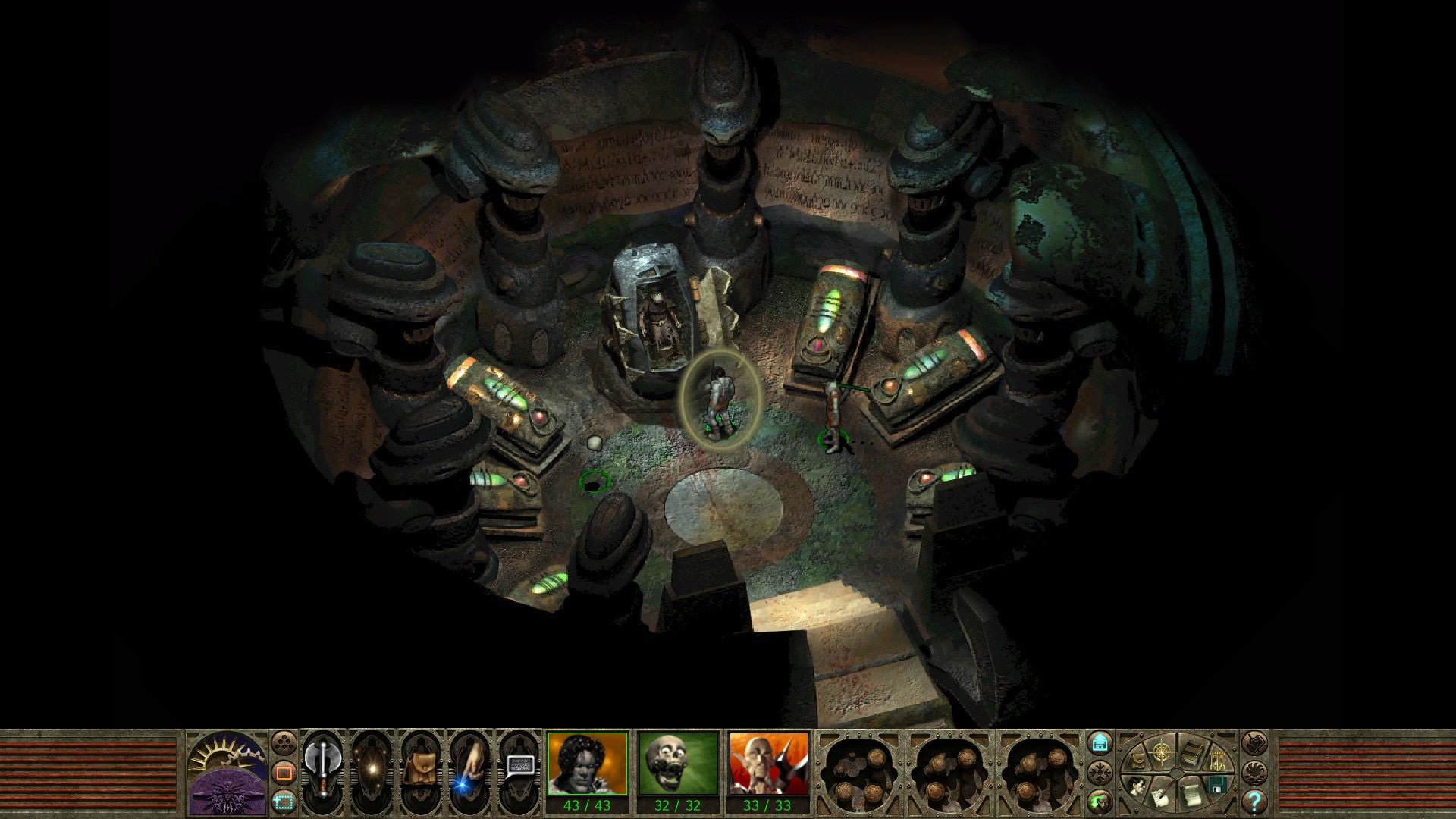
With its amnesiac hero waking up in a morgue with no clue who they are or what they’re about, Planescape: Torment begins like a lot of video games do: filling in the gaps by teaching you and your hero about its world simultaneously. But it’s the where Torment goes from there that matters. In this isometric RPG, finding the answers involves a little legwork through multiple dimensions. Turns out you’re an immortal being called The Nameless One who’s been resurrected with a new body and personality each time you die. But you aren’t even the best part of Torment. It’s a game revered for its characters, and the rest of its cast still hold sway even today, from Morte the floating skull to the bat-winged brothel matron Fall-From-Grace. It is getting on a bit, but the Enhanced Edition still makes this a brilliant outing even today.
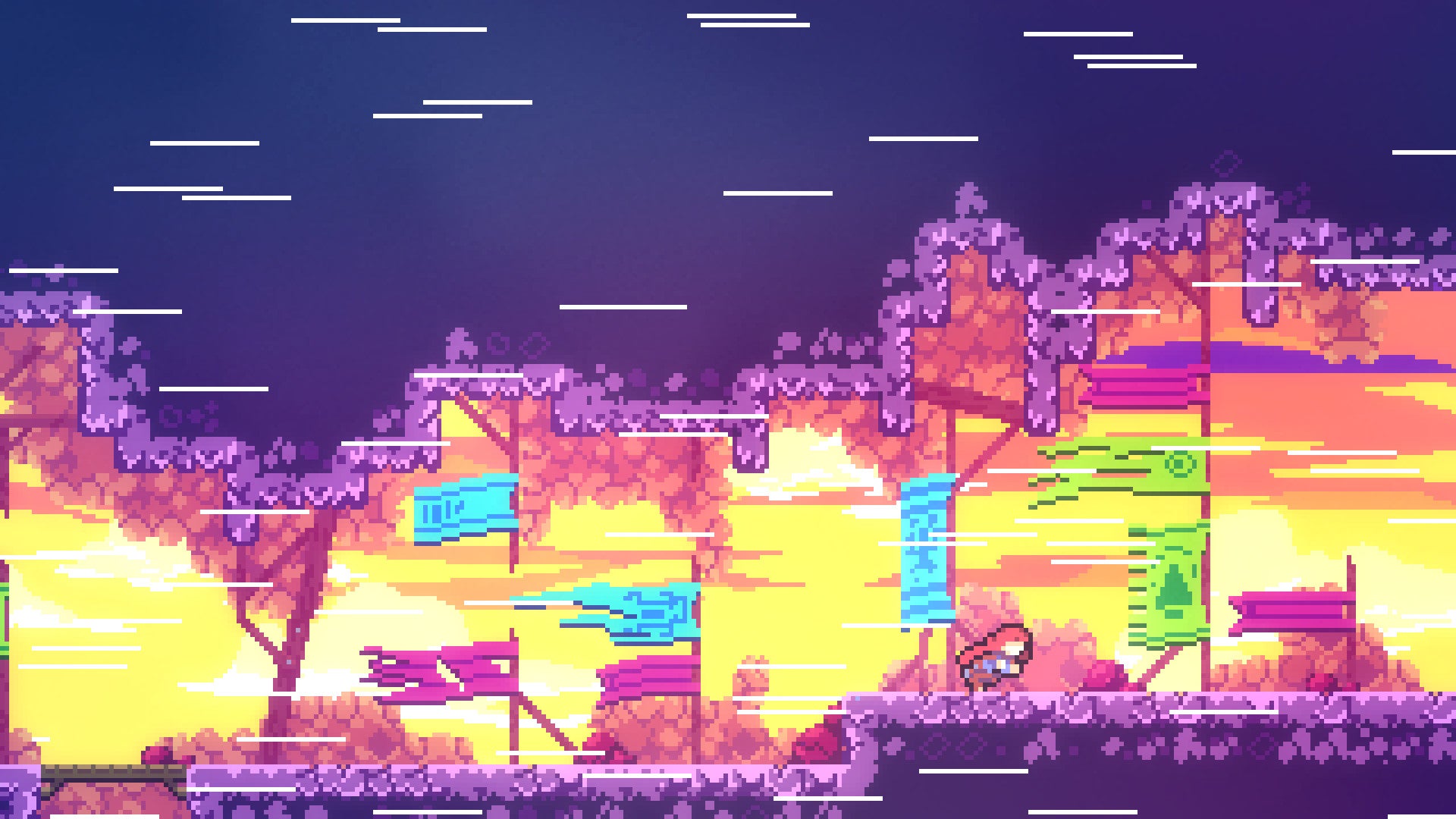
The phrase ‘peak platforming’ has never been more apt than with Celeste. You are its titular heroine, a climber leaping and jumping up a mountain that’s full of treacherous dashing and wall-jumping, offering players a steep challenge that always feels firm yet incredibly fair. It’s one of those games that also feels intensely good under the thumbs, but isn’t afraid to open itself up to those who less nimble fingers. Back in 2018, it set the standard for accessibility, offering up invincibility and infinite stamina options, and even went as far as letting you skip entire levels. None of these are unique to Celeste, of course, but developers Extremely OK Games have applied all this wisdom to create a platform game that’s both tough as toffee in cold weather, and as forgiving as the grandad who gave you said toffee.

As Microsoft’s series of traditional aeroplane ’em ups approaches its 40th anniversary, the monumental achievement that is 2020’s Microsoft Flight Simulator comes into ever greater focus. Not only are Asobo Studio constantly adding and improving this most seminal of flight sims, but it continues to be both a deep and slow-burning affair for off-duty pilots, as well as a gleeful cloud-skimming challenge for hobbyists. You can fly planes as small as a Cessna 152 or as large as an Airbus over a planet teeming with photorealistic cities, seas and mountains. It’s a spectacular sight, made possible by capturing and rebuilding seemingly the entire world using (of all things) Bing maps. A true marvel if ever there was one.
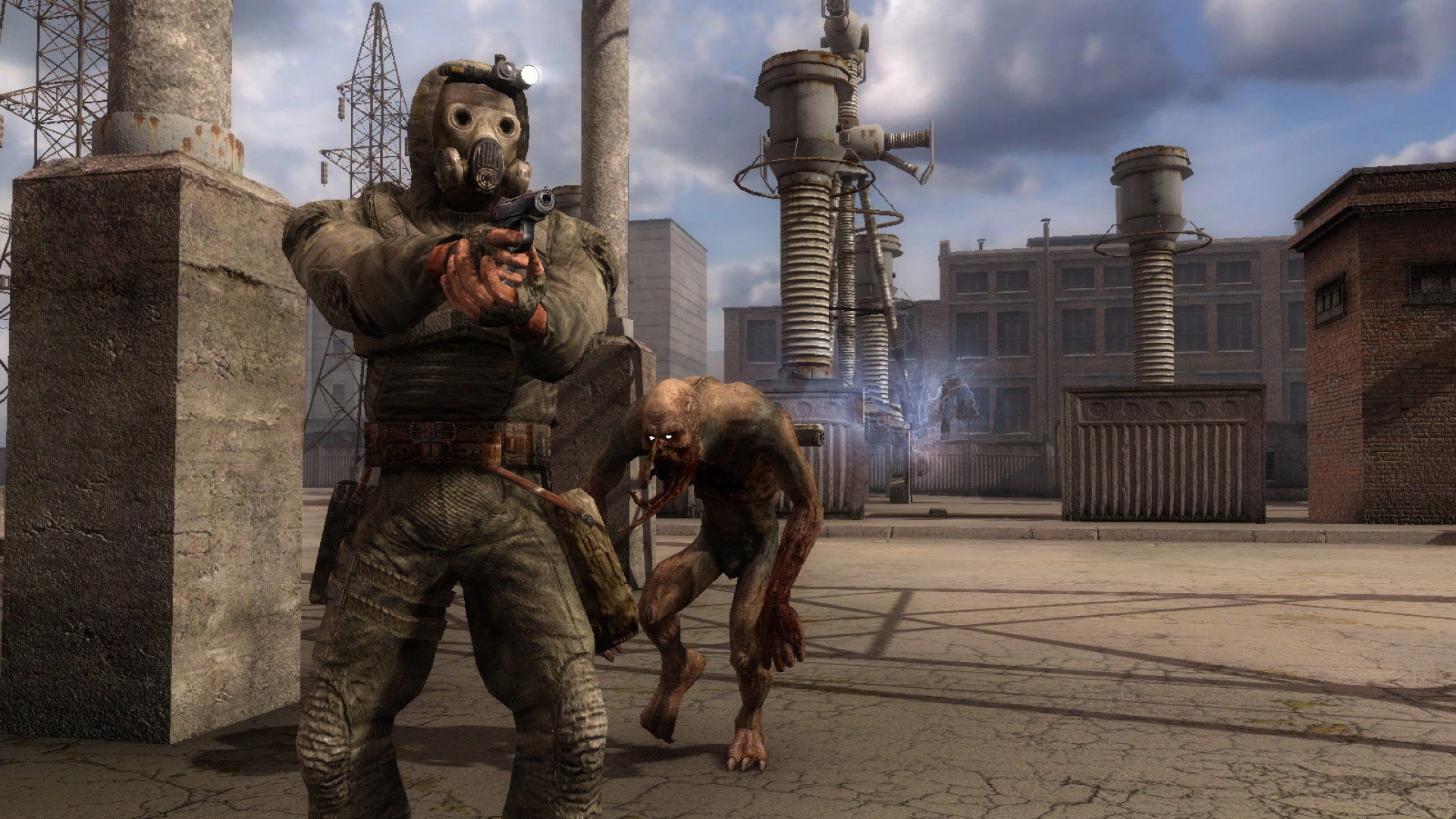
S.T.A.L.K.E.R is the first-person post-apocalypse survival shooter that has everything you could possibly want from its respective genres. There’s the open world full of mutants, bandits and other friendly fellow Stalkers, and its palette of browns and dark greens creates a world you can practically smell through your screen. Your mission is to find artifacts scattered throughout the “Zone” – an irradiated hellscape inspired by the Chernobyl exclusion zone (along with the Russian film that has an identical name). There are a larger objectives at play here as well, involving some downed helicopters, but like everything in this blasted radioactive heath, your actions are dictated by necessity.

It’s amazing what white text on a crimson background can do. You are a member of an empress’ court in this Twine text adventure, serving a creature described as both monarch and monster. Her city is a labyrinth of “dream distilleries” and “sporeflesh” gardens. And as the days pass, you’ll draw symbols on your forearm in real life (no, really), totems of the time spent in this other world. You come away from this feeling scarred and changed. Razorlike pen marks or thick permanent marker strokes across your limb, completely different patterns and symbology to anyone else who plays. With Those We Love Alive is like falling asleep to a Grimm’s fairytale at the tattooist and waking up with a dream printed on your skin.
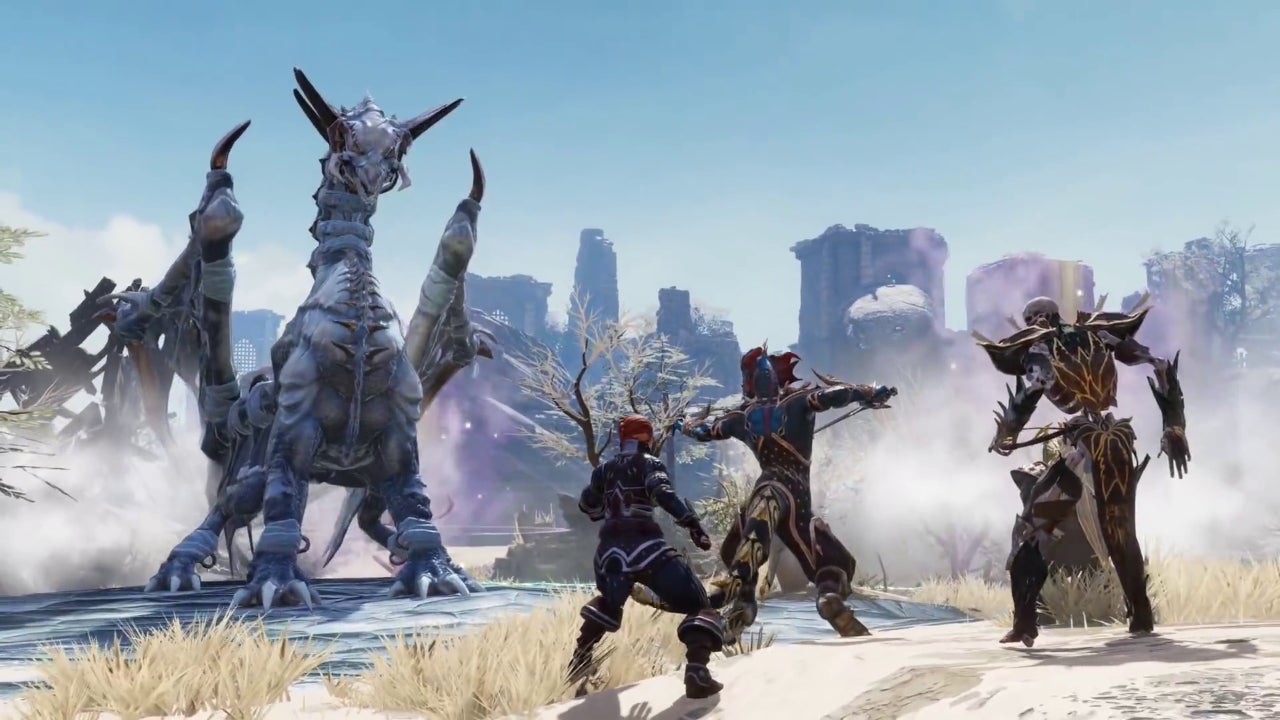
As Larian continue to toil away on Baldur’s Gate 3, their most recent work, Divinity: Original Sin 2, remains a high point for RPG design. It’s the kind of game where you can roleplay a stuck-up dragon prince and not get an intense amount of side-eye from real-life Dungeons & Dragoners, for starters, and its isometric, turn-based combat really encourages you to mess with the environment. Set oil slicks ablaze, electrocute soaking enemies, turn that corpse into a bloated bag of flesh and force it to fight for you. There is a central tale about the gods and the fickle games they play with this gang of potential chosen ones. But there are also enough off-beat sidequests and hidden storylines to inspire 82 episodes of a “good cop, bad cop” style Let’s Play series. It’s a huge, chunky RPG that will keep you enraptured for weeks, possibly months, and that’s before you get into the open-ended co-op or the custom adventure creator that lets you design your own stories to take friends through as a benevolent (malevolent?) gamesmaster.
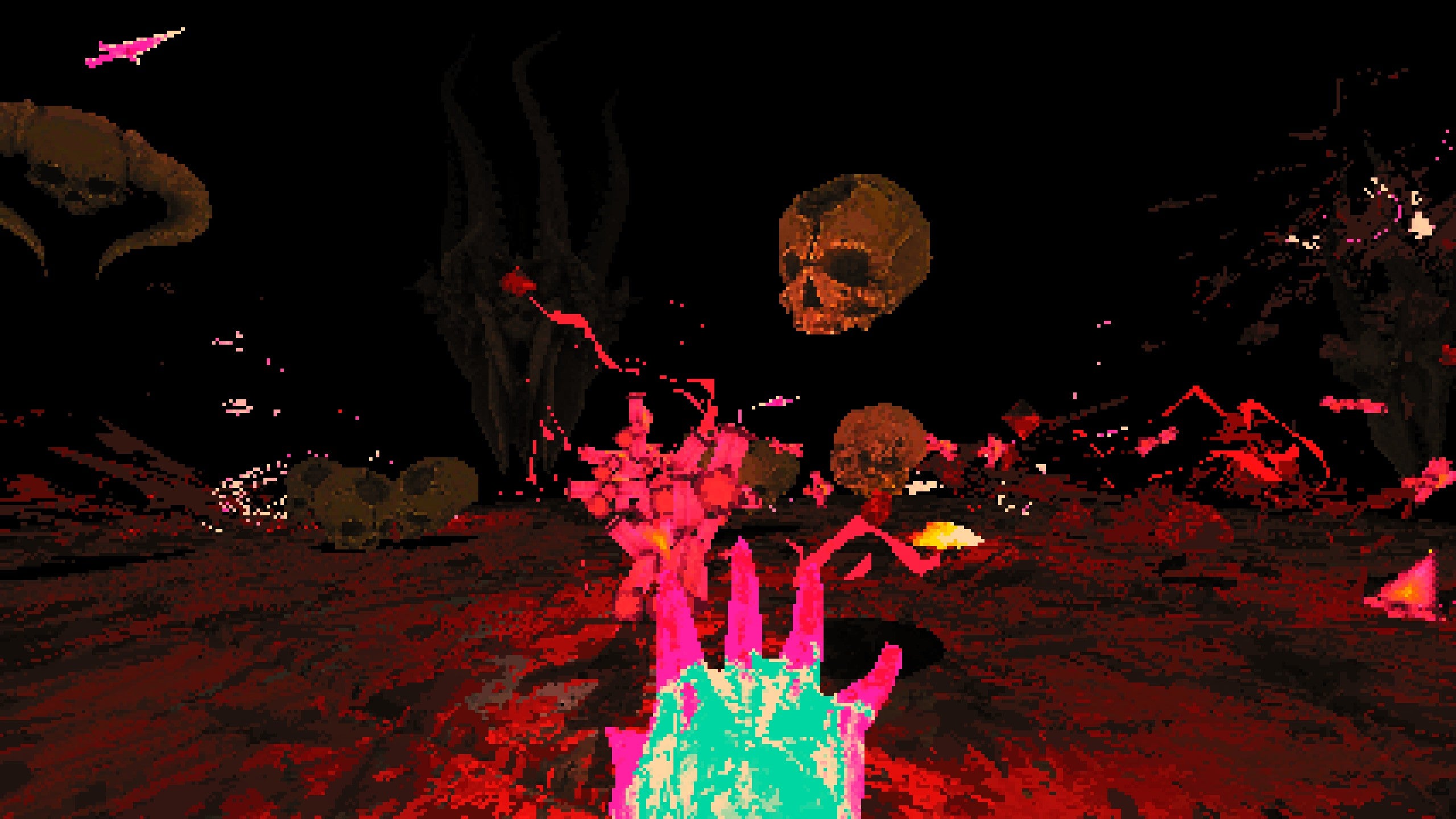
Never stop shooting. Never stop moving. The first-person principles of warfare are taken to their logical conclusion in a hellish time trial of reflex and spatial awareness. Horned beasts, floating skulls, boney leviathans, dark squid. The flow of polygonal terrors is as constant as the daggers spewing from your fingertips. You can fire them as a stream, or in a single shotgun-like blast. Either way, you’ll need your wits as well as a whip-like wrist to survive for 30 seconds. What more is there to do in Devil Daggers? Well, you try to survive for 31.
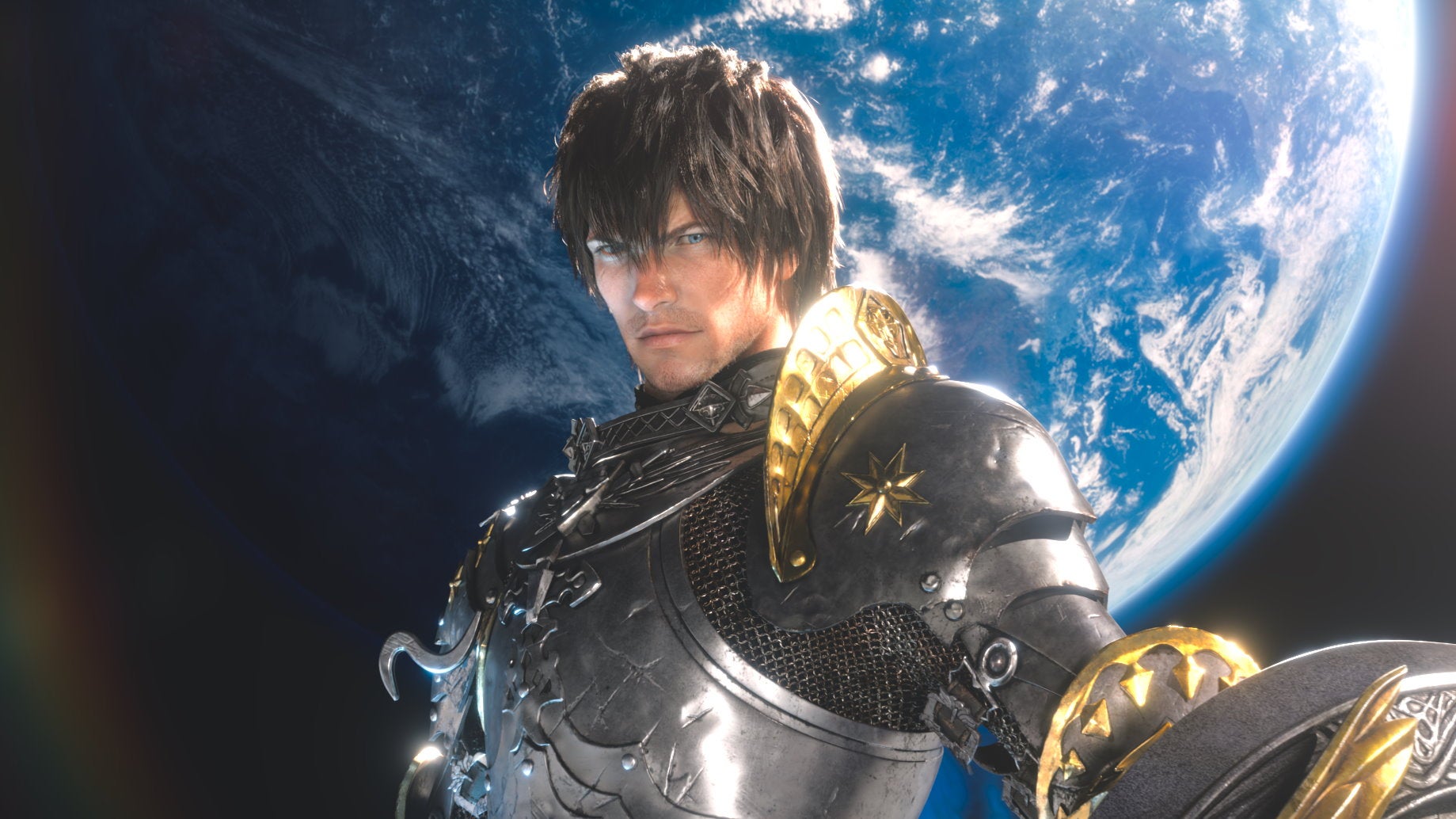
What once began life in 2010 as an unremarkable online spin-off to Final Fantasy has since become one of the best MMORPGs of all time. Final Fantasy XIV has gone from strength to strength with every expansion it’s received since 2010, and it’s now been revamped and expanded to the point where many players dive into the land of Eorzea simply for the story quests. Make no mistake, this is still an MMO with plenty of rat-whacking. But it might be the best example of a genre that too often forgets to spin you a yarn as you level up. Here, colour is provided as much by players as by the developers. There are fashion contests, theatre troupes, even a full-blown housing crisis. And, of course, enough lore to fill a small library.
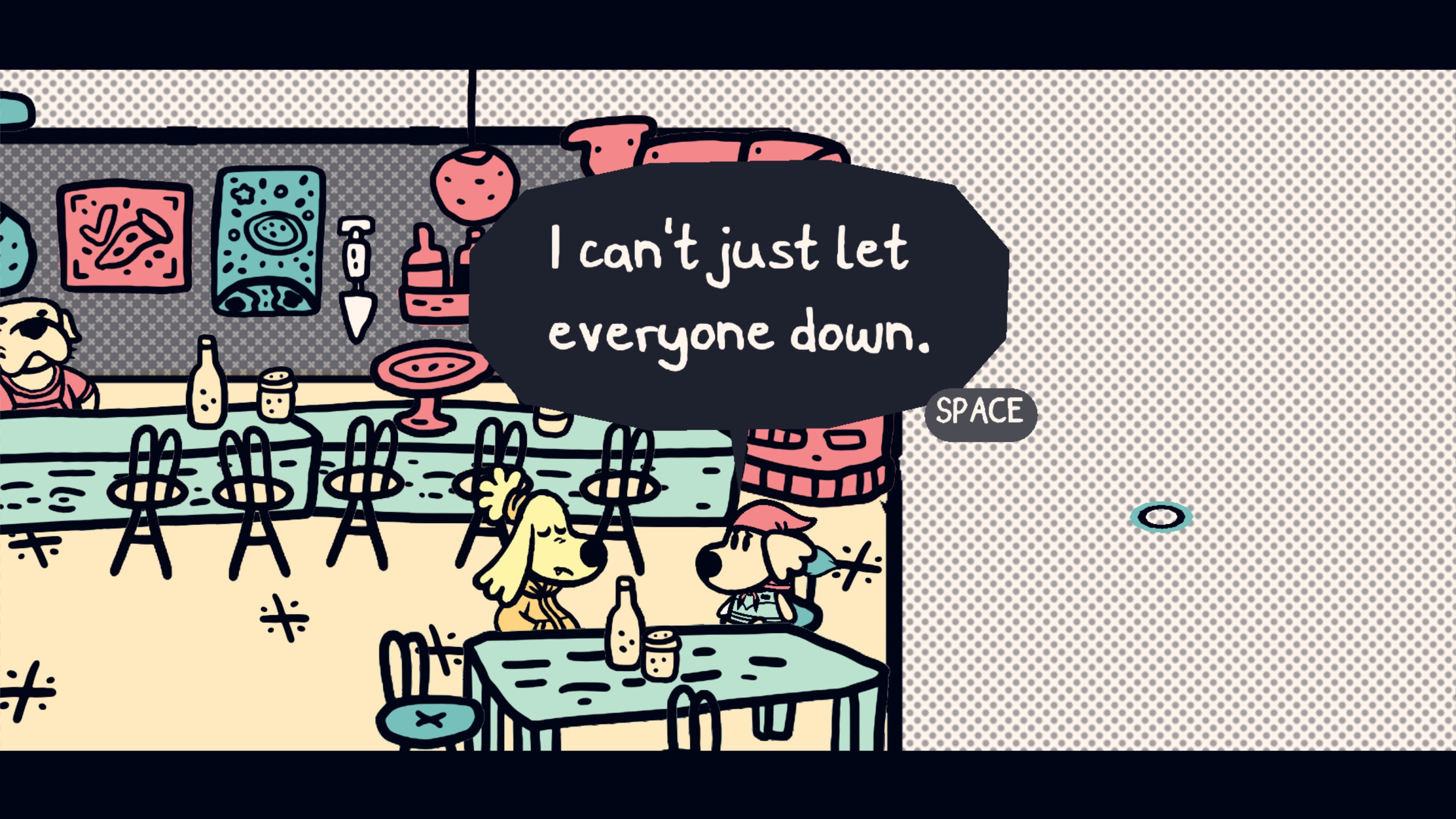
Chicory is a truly special game. Despite its big, chunky picture book veneer, this top-down adventure strikes hard at what it actually means to be a creative, celebrating its joyous and fulfilling highs while also tackling its (sometimes literally) monstrous lows. When all the colour in the world suddenly disappears one day, your character comes into possession of the Wielder’s Brush, a magical tool you can drag and splodge across the screen to cover it in paint. As well as using it to bring some life back to this monochrome world, you’ll also be solving puzzles with it, and finding out exactly what’s causing mysterious black roots to appear around the map and why they’re giving off such bad vibes. An ode to self-expression, Chicory’s the kind of game that stays with you long after the end credits start to roll.
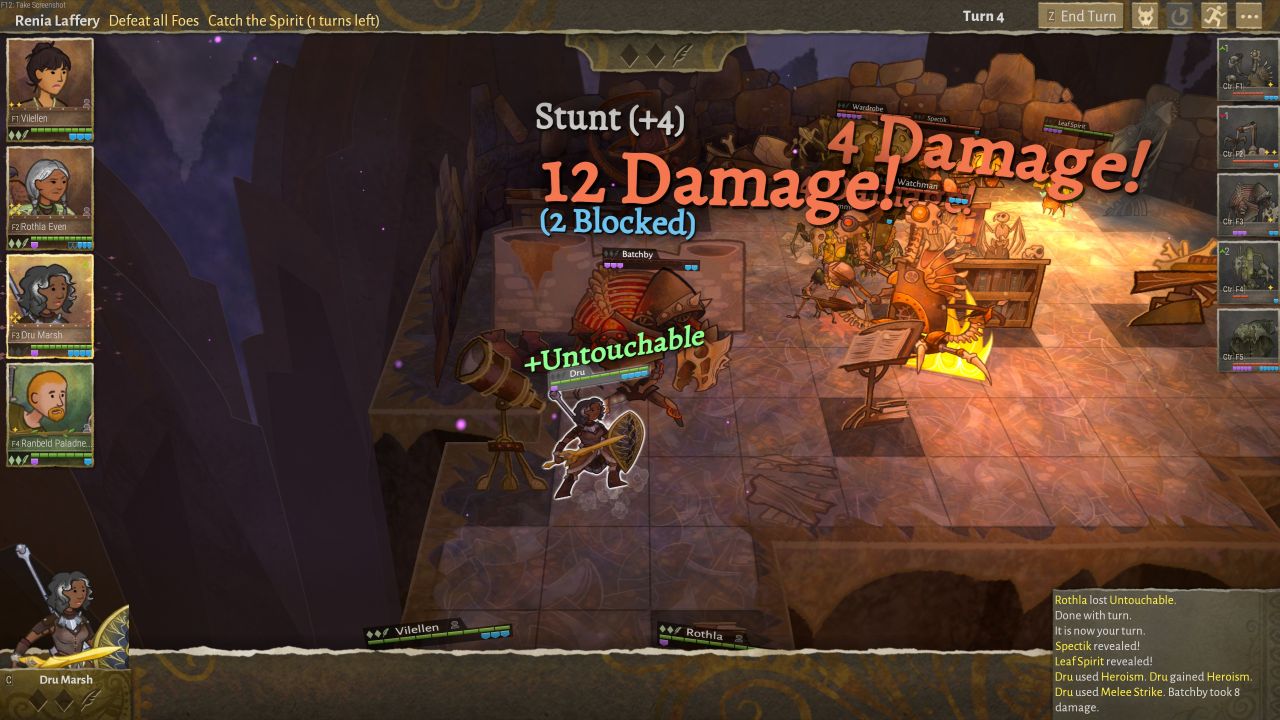
Play Wildermyth, you cowards. No joke, this game is a genuine marvel. On the surface, it’s a tactical turn-based RPG about shepherding a bunch of wannabe adventurers around a fantastical world full of monsters. Its battles scratch all those lovely strategic itches you know and love – the flanking bonuses, the cover tiles, the adjacency-depending support skills – but it’s also one of the best story generators of the last decade. Thanks to the dozens upon dozens of scripted micro-stories that play out over the course of its story – all based on your characters’ personality traits, skills, background, relationships and your own decisions, I might add – Wildermyth’s narrative ambitions put other RPGs to shame. You never play the same game twice in Wildermyth, and once you’ve experienced it, you’ll never want to go back to the humdrum tomes of other Tolkien-esque fantasies ever again.
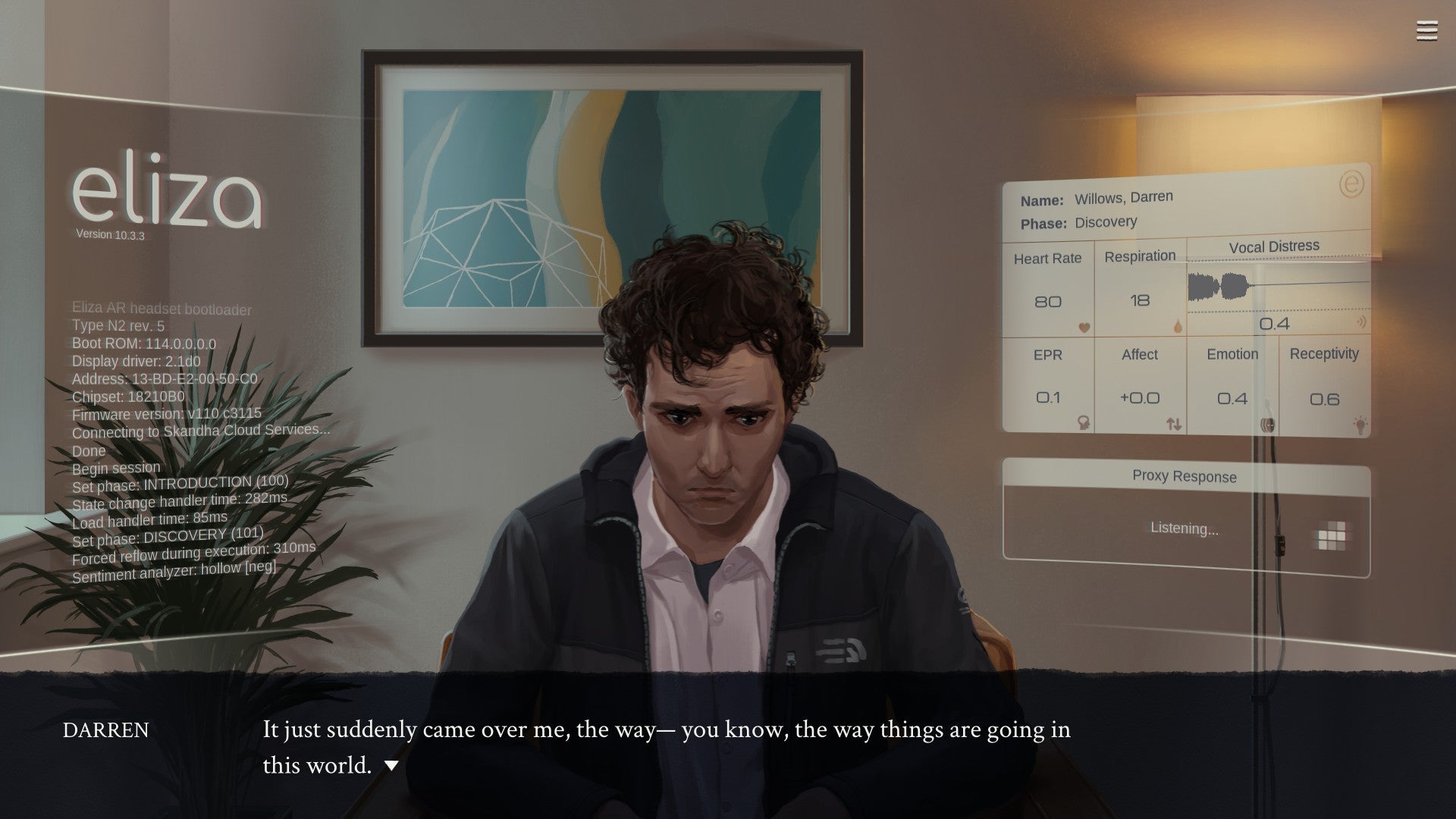
Eliza is one of those rare games that isn’t afraid to ask big tech questions. A challenging yet uplifting visual novel, it puts you in the shoes of Evelyn, a former tech-ite who now works as a human proxy for the eponymous AI counselling programme that helps the world at large deal with its woes and worries. It’s an AI that generates things for Evelyn to say to her ‘clients’, because it’s the algorithm that knows best in these cases, not the human sitting across the desk from them. At first you must pick from the list of Eliza-written responses, but later Evelyn has the option to go off-script, with all the potential effects that implies. Eliza is not only beautiful to look at, but it’s also compelling to play. Is something better than nothing? Is it worse? What, after all, do we owe to each other?
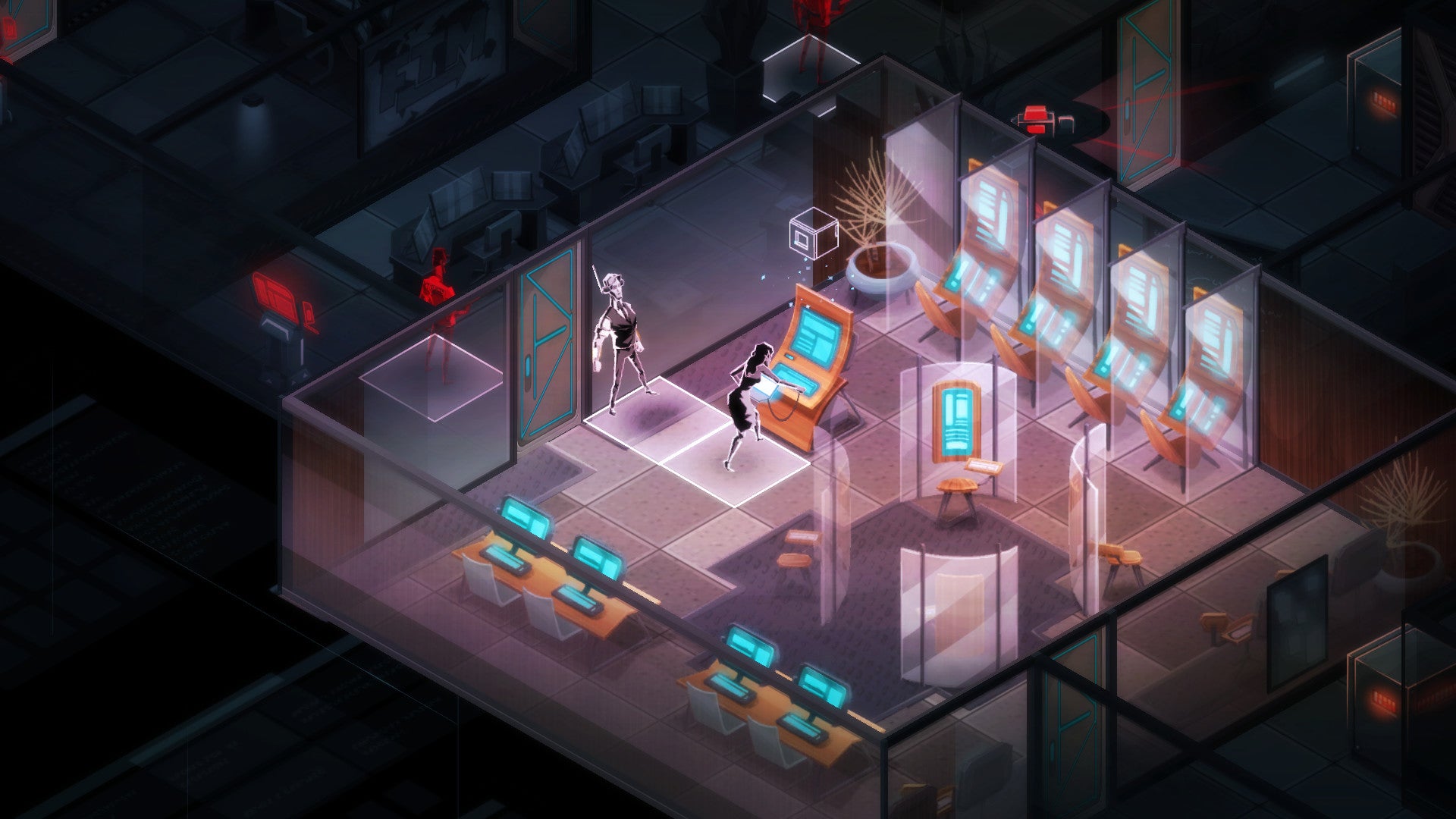
XCOM for stealthy hackers. As squad leader of a group of well-dressed anti-corporate saboteurs, your job is to infiltrate randomly generated buildings and steal everything that isn’t nailed down. It’s all on a tidy isometric grid that gradually reveals itself the further you go, peeping through doors and around corners to see the CCTV cameras, laser fences, and armoured security goons patrolling the place. Shh, they don’t know you’re there… yet. This is Invisible Inc’s best feature, a little “alarm level” wheel in the corner that ticks up with every turn. Stay in the building too long without stuffing all your team members into the exit elevator, and more cameras and drones and enemies will start to appear. That’s pure danger in a game where, once spotted, there is no fighting back. At some point, you’ve got to bug out. Even if that last room has precious loot calling out to you. It’s a strategy game about pushing your luck to breaking point, and coming away from a mission thinking “that was close, I won’t be so greedy next time.” But next time the “loot” might be one of your friends.
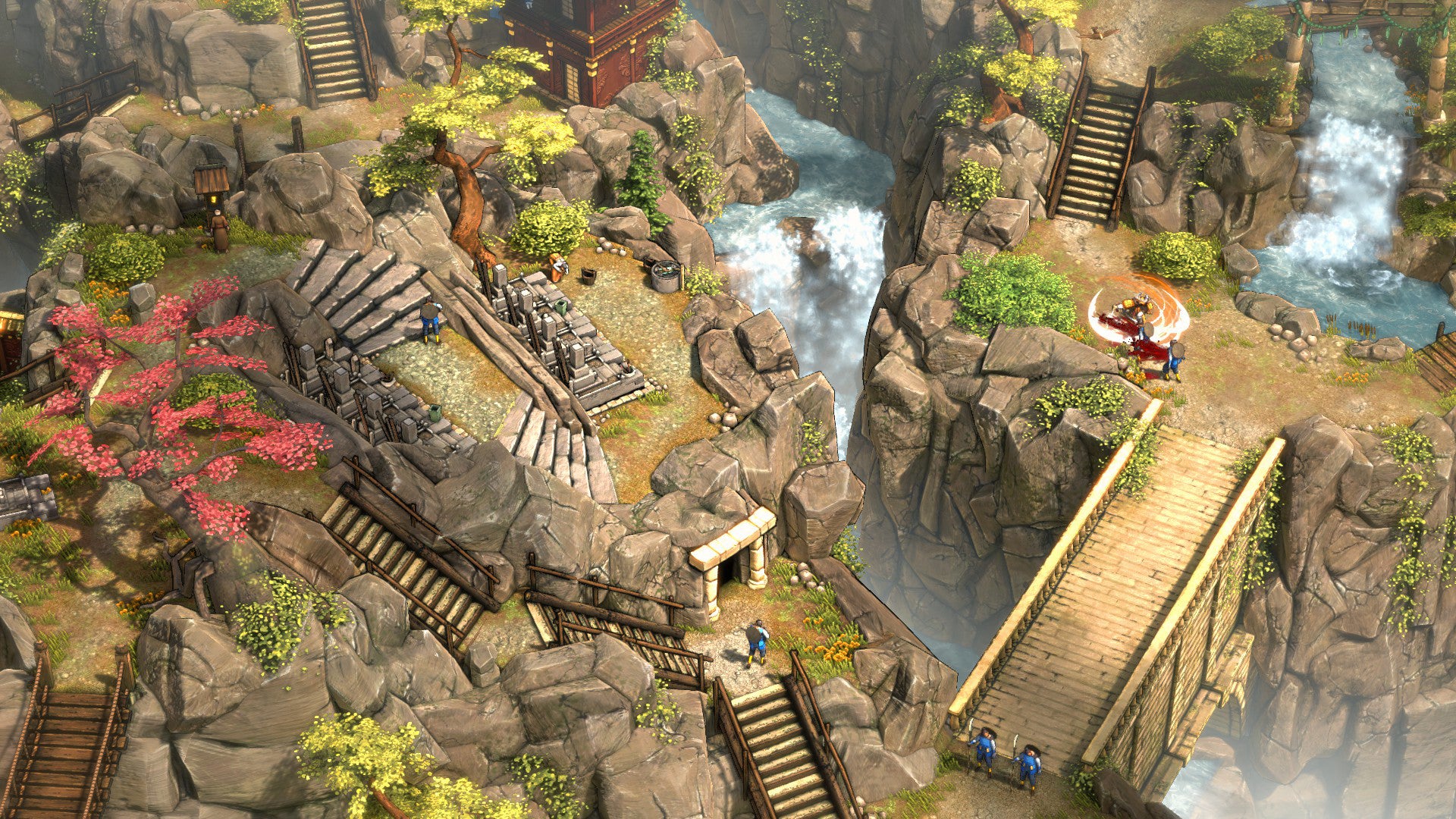
Let the bodies hit the floor (and then pick them up and hide them in a bush). This here’s your top-down stealth game set in Edo Japan, featuring the usual cast of seasoned killers. You’ve got your silent ninja, your honourable samurai, your Geisha assassin, your urchin with a bear trap and a whistle, your old man with… a sniper rifle and a trained Tanuki? It imitates the Commandos games of old, presenting the level like a diorama of possible deaths, and asking the player to come up with a perfect sequence of backstabs, shurikens and environmental “accidents” so they can get through town, eavesdrop on soldiers, or assassinate their leaders. It might take some quicksaving and quickloading, but when the plan comes together it feels like a lethal puzzle well-solved.
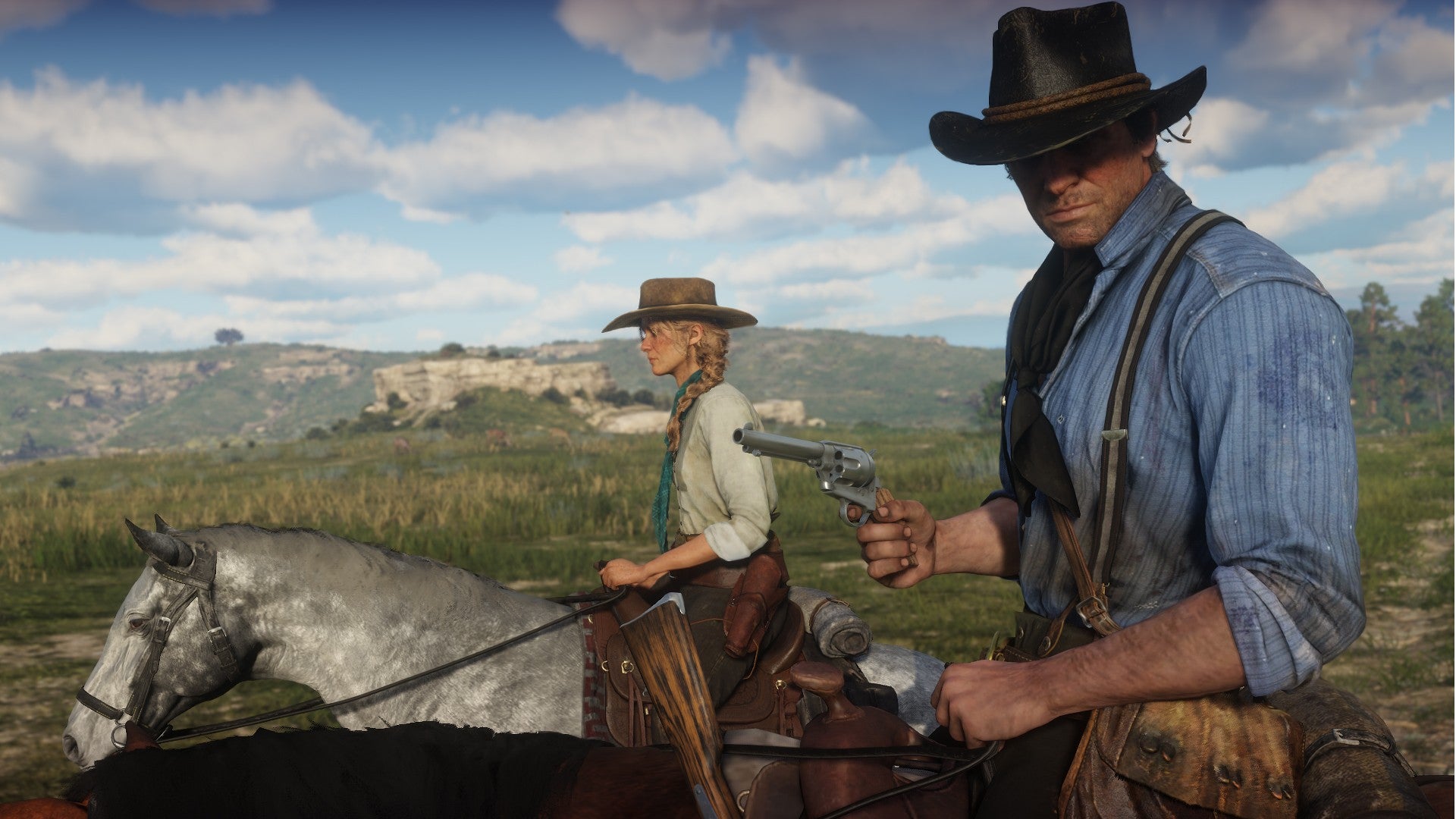
Wanna get dead drunk? How about Red Dead drunk? Ha ha ha. No, for real, if you get drunk in this game you’ll trip on a railway line and get flattened by a steam train. Rockstar, the developers of this cowboy life simulator, did not hold back. It is not precisely a world of “realism”. You will kill hundreds of people and swallow enemy bullets like they are delicate pastries. But there is something about the way plain-faced anti-hero Arthur Morgan walks, the way he rides his horse and holds his revolver. Everything is weighty, everything requires a bit of work. From opening up and scoffing down a jar of health-regenerating offal, to getting out your lasso to hogtie some do-gooder witness to your recent crimes. Red Dead Redemption 2 is video games as wild man power fantasy. But it is also your sit in a canoe and chill out fantasy. Go fishing in the wild west fantasy. Get eaten by a bear fantasy. Drink too much whiskey and wake up in a canyon fantasy. It’s a big world out there, and a man can only spit so far.

Still a masterclass in how to make a VR game, Half-Life: Alyx is clear, undeniable proof that Valve are still very much at the top of their game. Set in City 17 five years before the events of Half-Life 2, you play as a younger Alyx Vance on a mission to rescue her father from the shackles of the Combine. Shooting in VR remains as tense, taut and tactile as ever, and the screech of a head crab has never been more terrifying. After all, it’s not your monitor screen they’re leaping at any more, but your actual, literal face. But it’s the little details that really make Alyx sing, from scribbling on window panes with in-game marker pens in real-time, to playing the piano and simply watching bottles of liquid slosh around in your hand thanks to their impeccable physics. And what hands they are, too. Clad in a nifty pair of gravity gloves, they not only let you reach out and grab whatever object the Combine have left lying around, but they also double up as your health and ammo meters, elegantly removing the need for a traditional HUD. Is it worth buying an entire headset for? Maybe not, unless you have very deep pockets, but if you do have one, this is about as essential as it gets.
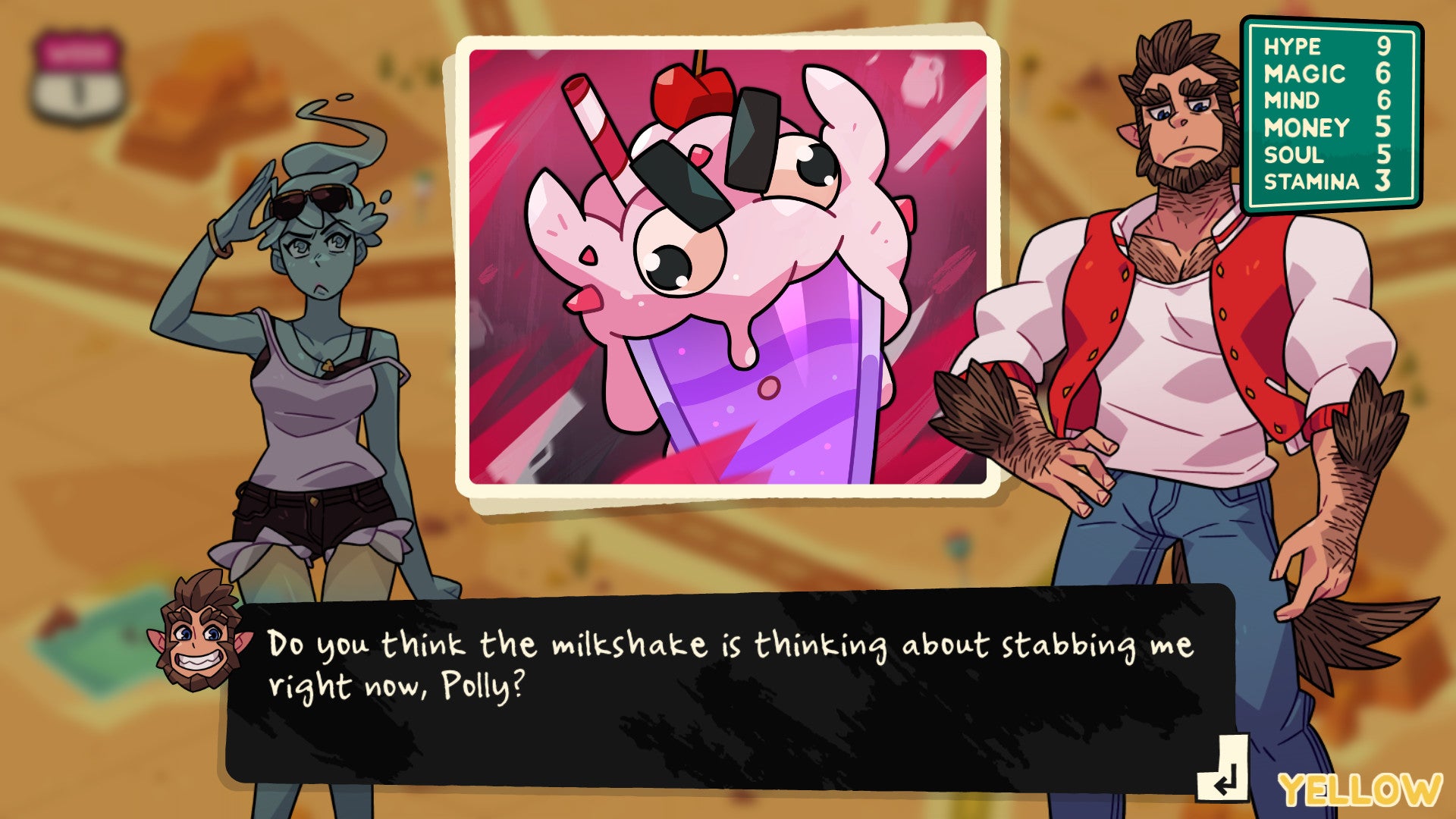
Monster Prom 3 is so new the paint’s still wet, but I’m already calling it: this is the best Monster Prom game yet. A follow-up to the original 2018 multiplayer dating sim and its 2020 sequel, Monster Roadtrip delivers on the best of what we’ve come to expect, but refines the formula significantly. Monster Prom games were always charming, but the shift away from relatively-straightforward dating sim to survival strategy with-dating-elements makes playing this latest entry with pals feel more meaningful. You now have a choice of modes on a sliding scale from co-operative to competitive, and the visual novel sections are much punchier — but no less packed with laughs and lore. Basically every character from the first and second games makes a return, and there are some lovely moments as you see relationships you’ve been following for the past two games deepen. They’ve even added save states, so you no longer need to complete each run in a single session! Pure monster-romancin’ bliss.

Resident Evil Village is a blend of slow, creeping horror that lurches out from the shadows to scare you when you least expect it, and riveting action that packs your pockets with ammo before unleashing hordes of ravenous werewolves. That might sound like an identity crisis, but it excels at both halves so triumphantly that it’s hard not to come away impressed. From stumbling through a ghoul-filled cellar flooded with deep ruby wine to blasting iron soldats in the face with a grenade launcher, Resident Evil Village forces you to face your fears and then helps you conquer them with an explosive blast. In other words, it’s nice horror. Horror that guides you through the feeling of shitting your pants and back to the sensible werewolf-slaying champ that you are, rather than leaving you huddled in the corner in a panicked sweat. I appreciate that a lot.

Survival games often place you in a harsh environment, usually populated by monsters, zombies or other threats. Subnautica puts you in a world that is only harsh because you don’t belong there. There are no monsters here, only animals you haven’t seen before. There is so much life in this first-person survivathon, and you’ll need to dive among the reefs and sci-fi shipwrecks to find the materials you need to stay alive. Quench your thirst with some Bladderfish, eat a salted Peeper, take refuge in the big underwater cylinder of titanium you will call home. Other survival games would be content to leave it at this – a loop of crafting and getting by. But here, the radio crackles. A beacon! Somebody else might still be alive! This is how the subtle storytelling begins. Off you go on one of the many exploratory dives through this massive, handmade seascape. As a survival game, Subnautica is the best, with perhaps one blocky exception. As a journey of discovery, it is incomparable.
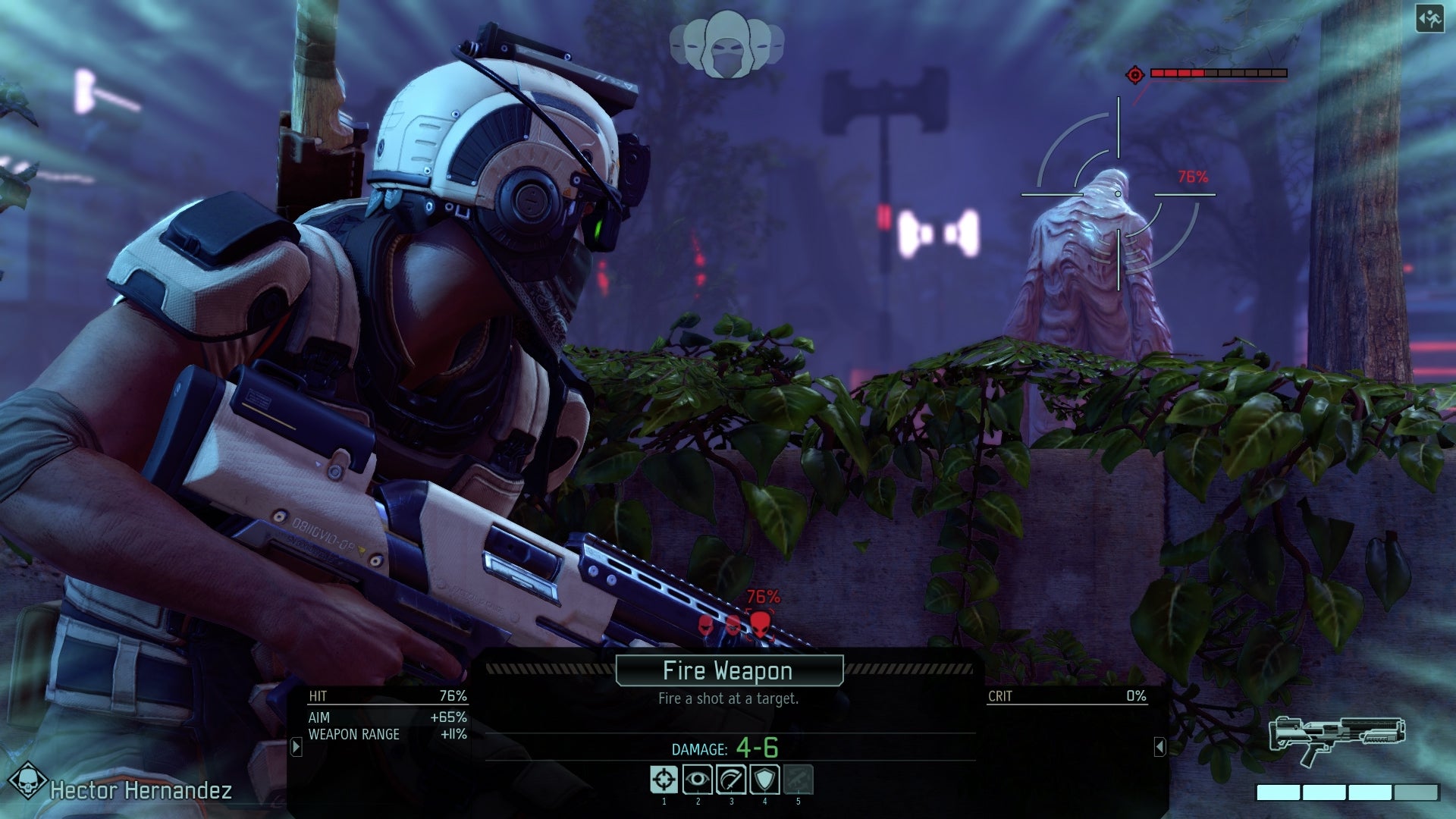
XCOM: Enemy Unknown was a landmark moment in the world of tactical strategy games, busting open and rejuvenating a genre that had long since lain dormant. But then Firaxis went and did it again with XCOM 2, remoulding and improving on the original in just about every way possible. In the last game, you were tasked with fending off an alien invasion, but things did not go well, judging by the set up for the story here. Instead, you’re now playing as the resistance, turning fights into powerful ambushes rather than messy run-ins with enemies you couldn’t see. There’s no relying on a constant stream of overwatch cones anymore. Instead, XCOM 2 takes everything that its predecessor already did incredibly well, and shakes it until it is somehow better. There is a base-building overworld to think about. Resources to manage. Troopers to keep healthy. Psychic supersoldiers to train. This is one of the most moreish, plenteous, and – dare I say it – replayable games on this list.
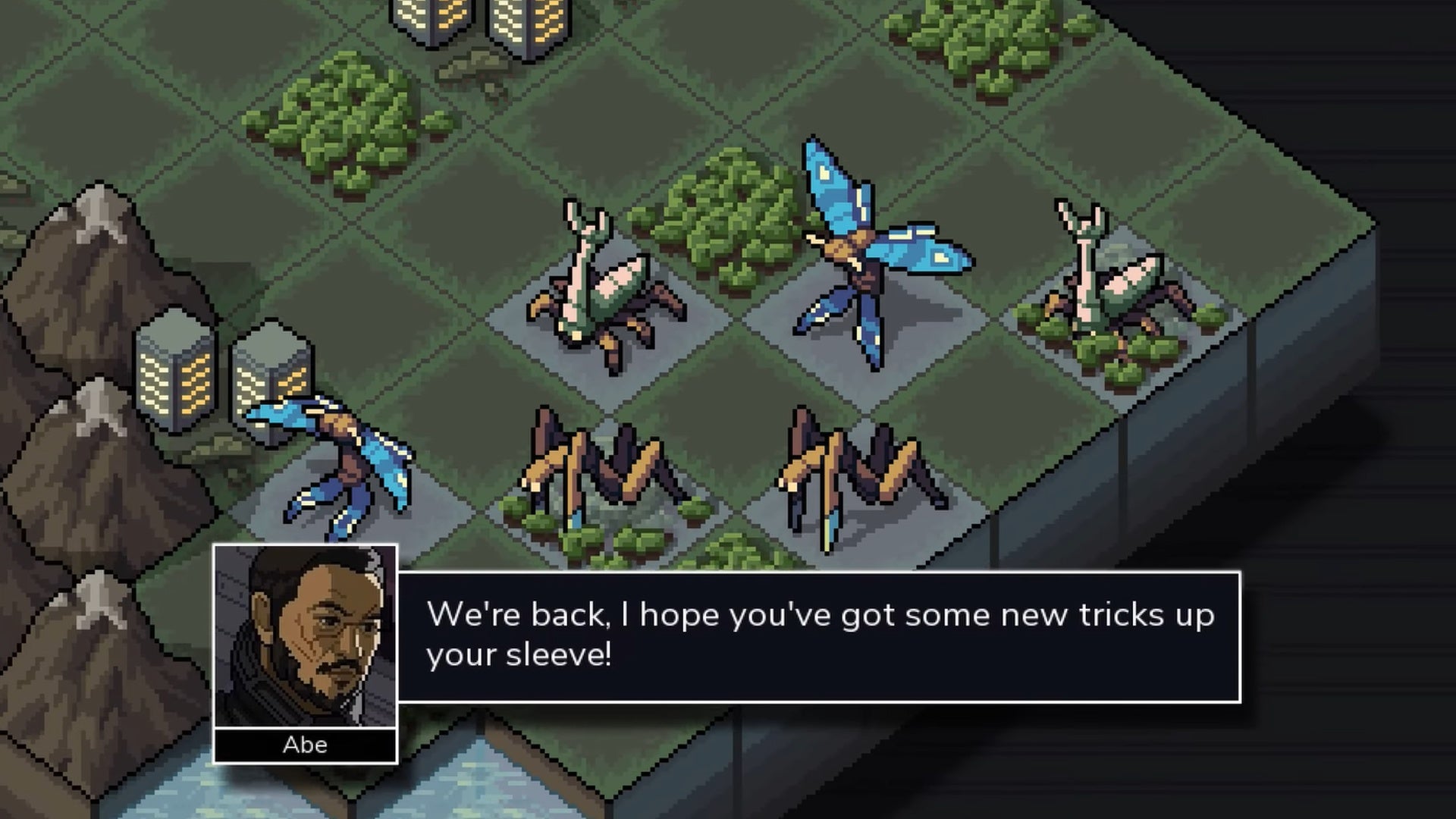
Into The Breach is about as close to the perfection of chess as a strategy game about giant robots is likely to get. While not exactly “minimalist”, this dollop of turn-based tactics from the makers of FTL still gets a lot done in a tight space. You command a trio of mechs fighting off swarms of giganto-insects on a 8 x 8 board of tiles. The megabugs are out to topple any buildings on the board, and if too many buildings crumble (or all your pilots are killed) it’s game over. What results is a cavalcade of punching, hopping, vapourising, smoke-bombing, and mech-sacrificing that turns a straightforward game of abstract repositioning into a brainy battle for supremacy betwixt humanity and beast.
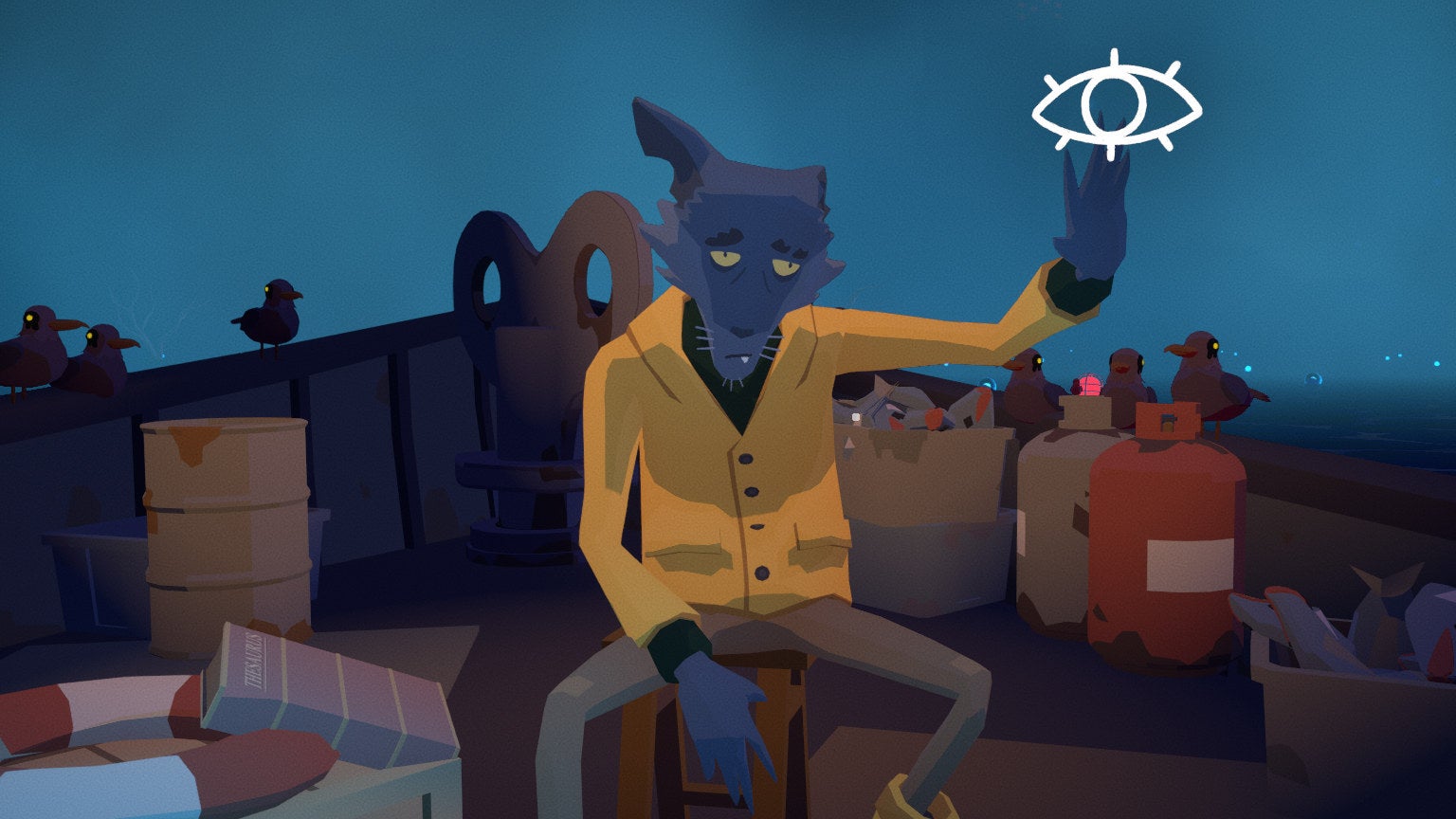
Before Your Eyes is a first-person story-driven game that takes advantage of your webcam, so when you blink in real life you skip time forwards in-game. Not only is it a beautifully realised world composed of brief vignettes, it’s one that’s masterfully arranged, steering you through memories of a life’s mundane joys and deepest sorrows with an impeccable flow. Above all, the game links you so strongly to the main protagonist through your blinks, it’s like you’re both physically attached to them and having an out-of-body experience. With a pair of headphones on and a spare 90-minutes, you’ll be in your room blinking back tears for a life that’s entirely yours until the credits roll. There’s nothing quite like it.

I’ve fought demons and dragons in medieval villages, explored the cities of long-dead aliens, and even driven a car, but no game has made me feel as lost and out of place as first-person explore-o-puzzler North. Applying for asylum in North after fleeing South, you have to integrate into a society you don’t understand, following rules which seem arbitrary, feigning beliefs by copying their trappings, and trying to do a job which seems impossibly cruel. What does this society value? What’s good and what’s bad? How much do I need? How can this be better than the situation we escaped? The answer involves a lot of curiosity, trial and error, and discovering strange and terrible things. How wonderful to feel this lost, confused, unease, threatened, and desperately unhappy.
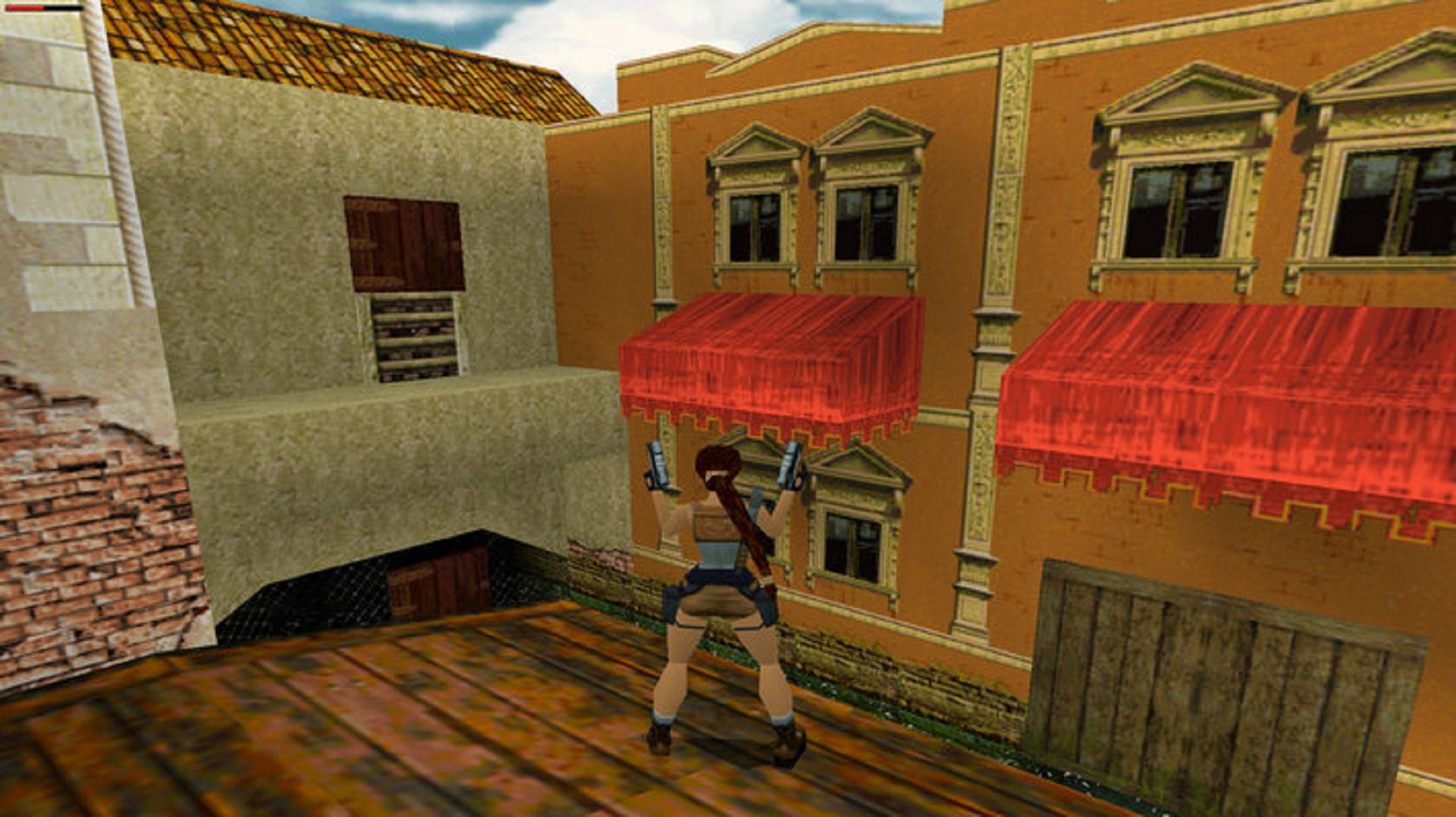
Released only 13 months after the original game, Tomb Raider II nevertheless showed off a number of improvements, mainly on the graphical side. Lara Croft now resembled a human being, and could even be taken for the woman on the box if you squinted. The sky overhead was no longer a depthless abyss even in the outdoor sections. Rounded edges were not unheard of. Affectionate ribbing aside: 25 years on, Tomb Raider II still features some of the finest set pieces in the franchise. This one game gave us Venice Violins, one of the most iconic musical compositions in gaming; an underwater level where your sole goal is to outswim a shark; snowmobile navigation sections with a surprising degree of replay value; and, to top it all off, an extended peek at Lara’s home Croft Manor in the epilogue. 1998’s Tomb Raider III deserves an honourable mention as well, but for the title that really set the standard for action-adventure gaming, it has to be TRII.

PC gaming “culture”, for lack of a better word, can be insular and overly serious. It can also be a wide-open, endlessly creative laugh riot, and few games embody that like Garry’s Mod. Whether it’s acting as the scaffolding for an homemade games-within-a-game or serving as a stop motion animation tool, you can be sure that even today, and probably right now, someone is sat down using Garry’s Mod to make something interesting. Of course, you don’t have to be a modder or aspiring game dev to get your seven quid’s worth. The server browser in Garry’s Mod is unique in its, uh, breadth: besides big-name GMod creations like Prop Hunt and Trouble in Terrorist Town, there are base building games, zombie survival games, obstacle course games, racing games, and uncountable roleplay servers. Or you could just load up a sandbox map and pose an Eli Vance ragdoll giving the Team Fortress 2 Heavy a piggyback. Up to you.
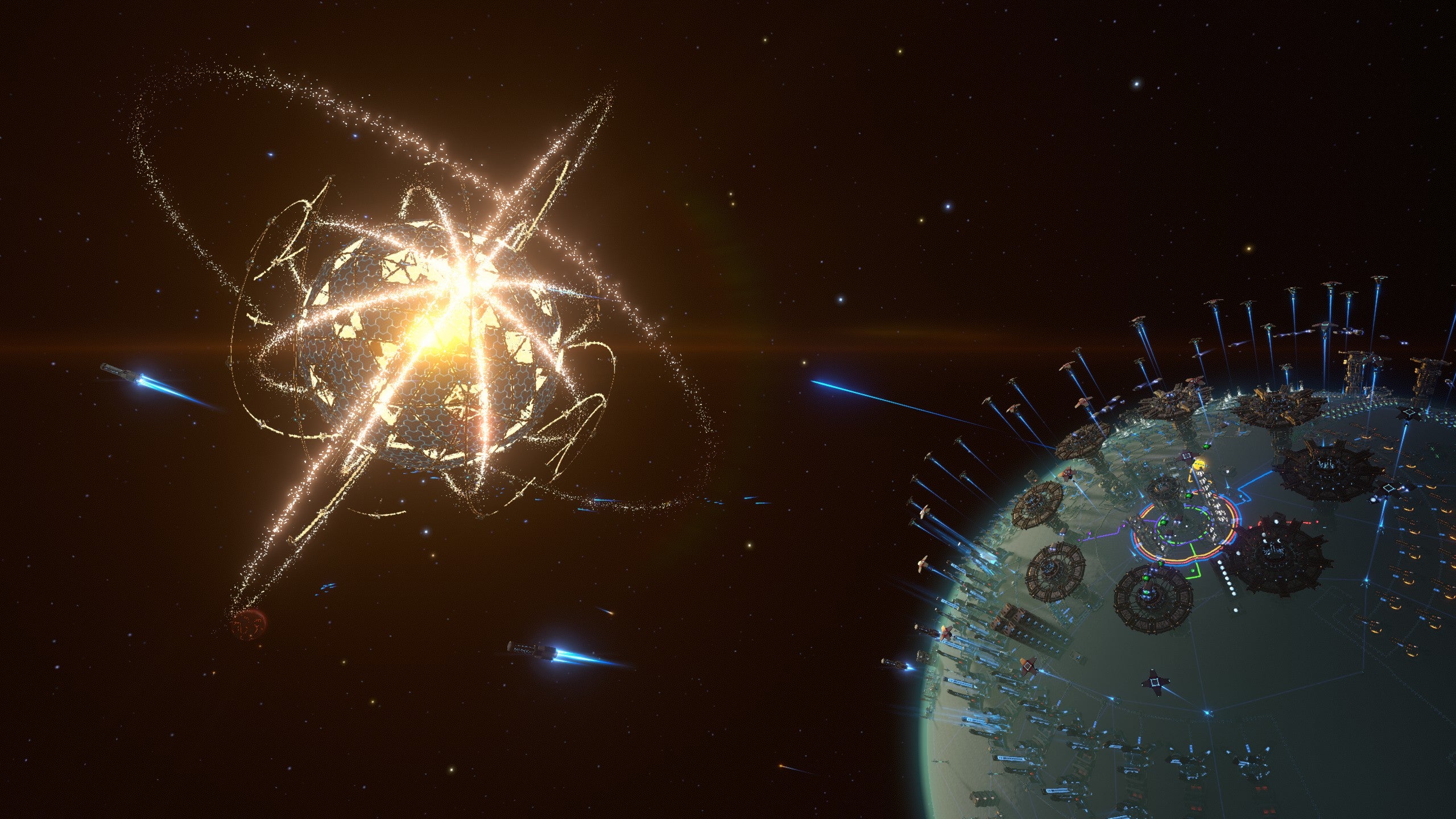
Dyson Sphere Program was such an ambitious idea for a game, I immediately scoffed upon hearing it. A factory building game like Factorio, set on an actual spherical planet? Oh excuse me – not just one planet, but dozens of planets across multiple star systems, all entirely traversable? And the aim is to create a Dyson Sphere out of hundreds or thousands of parts, capable of harnessing the power of a star to run an entire civilization living inside a virtual reality simulation? Bah! Preposterous! Turns out, they completely and utterly nailed it. From the first moments trundling about the surface of a planet mining ores with your fuel-powered mech, I was sold. The game ran smoothly, the scope and soundtrack were inspiring, and the lure of steadily automating mega-factories spanning whole solar systems, and creating massive interplanetary transport and logistics networks, was utterly captivating. It’s a truly special game.
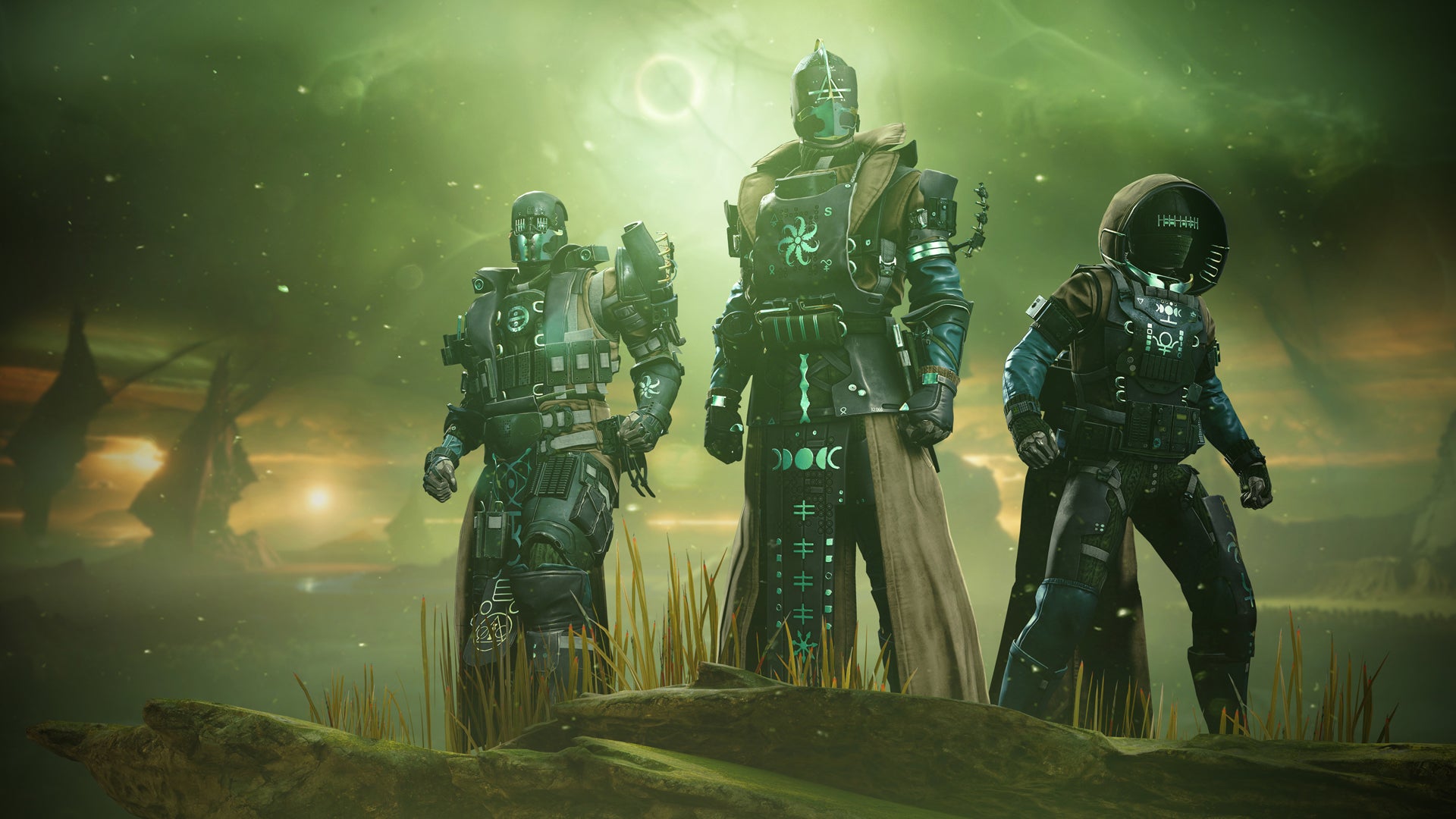
Destiny 2 is the FPS for the following people: parents whose children just got put to bed; retail workers too tired after a shift to go out on Friday; teens with buds; teens with no buds; teens who will make buds and join a clan in Destiny 2. It’s good, clean, alien-shootin’ fun is what I’m saying. You can smash the ground with your fist every once in a while, and wipe out a whole squad of robots, or take out a big, blunt sword and batter an insectoid miniboss to death. Everything is laid out for you on a platter – objective, reward, bonuses. As multiplayer games go, this is one of the cleanest and most approachable. Until it’s time to do a raid, that is. A raid is this sci-fi world’s tough dungeon dive and it requires solid teamwork amongst a bunch of geared-up pals. It’s a commitment, but one that Destopals often call a rewarding struggle. People often talk about Bungie’s 30 seconds of fun philosophy, but Destiny 2 is more like a full 15 minutes. Or an hour. Maybe two hours…

At first glance, Tunic appears to be little more than an homage to Nintendo’s The Legend Of Zelda. Its little fox protagonist wears a green tunic, he rocks up unconscious on a beach a la Link’s Awakening, and he must fight the world’s monsters with little more than a sword and shield. But Tunic does so much more than merely paying lip service to what came before. This is a rare game that doesn’t just understand what made those Zelda games tick, but it iterates on them and moves the conversation forward – and it’s all thanks to its ingenious in-game instruction manual, a tool which you assemble page by page, and gradually decode symbol by symbol as you move through the world and uncover its secrets. It’s a game that bottles and preserves the purest form of childlike discovery, while also being rock hard at the same time. Don’t be fooled by its cute looks. Tunic is a wily, cunning game that absolutely lives up to its vulpine namesake.
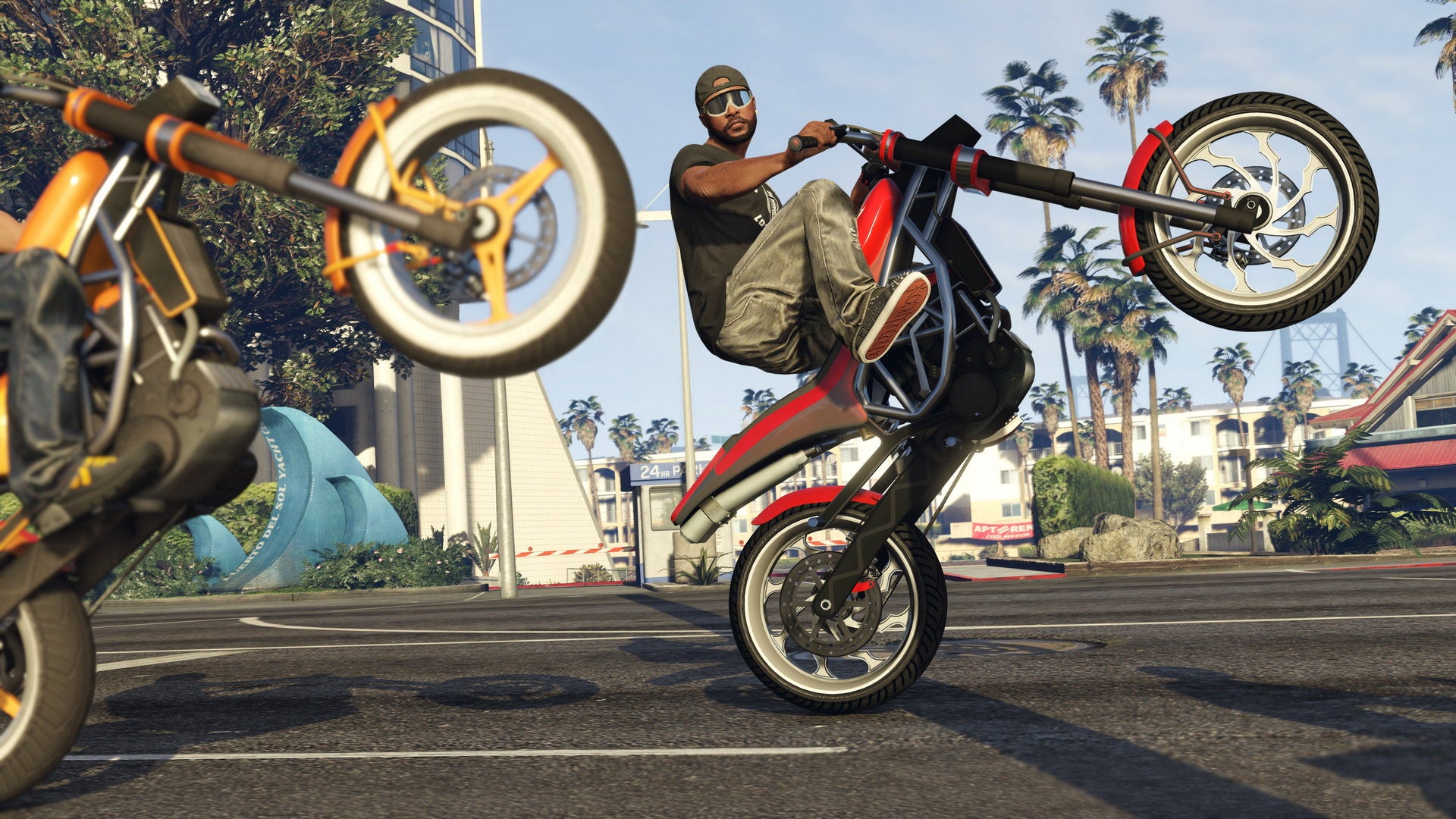
The online murder-frollicking by itself makes this third-person crime caper worth the price of admission. Rockstar’s expensive, blockbuster open worlds are often touted for their long stories and South Park-adjacent sense of humour. But we all know what matters in a GTA game is chaos. And chaos works best when you have a van full of friends to cause it with. The online world might see you performing heists with your buds, getting matching tattoos, buying more property than you can rightly afford, or dressing up as green aliens and getting into a gangland turf war with some purple aliens. Like all good online games, it is a simply solid place to hang out with your pals. Even if that sometimes gets interrupted by a harrier jet.
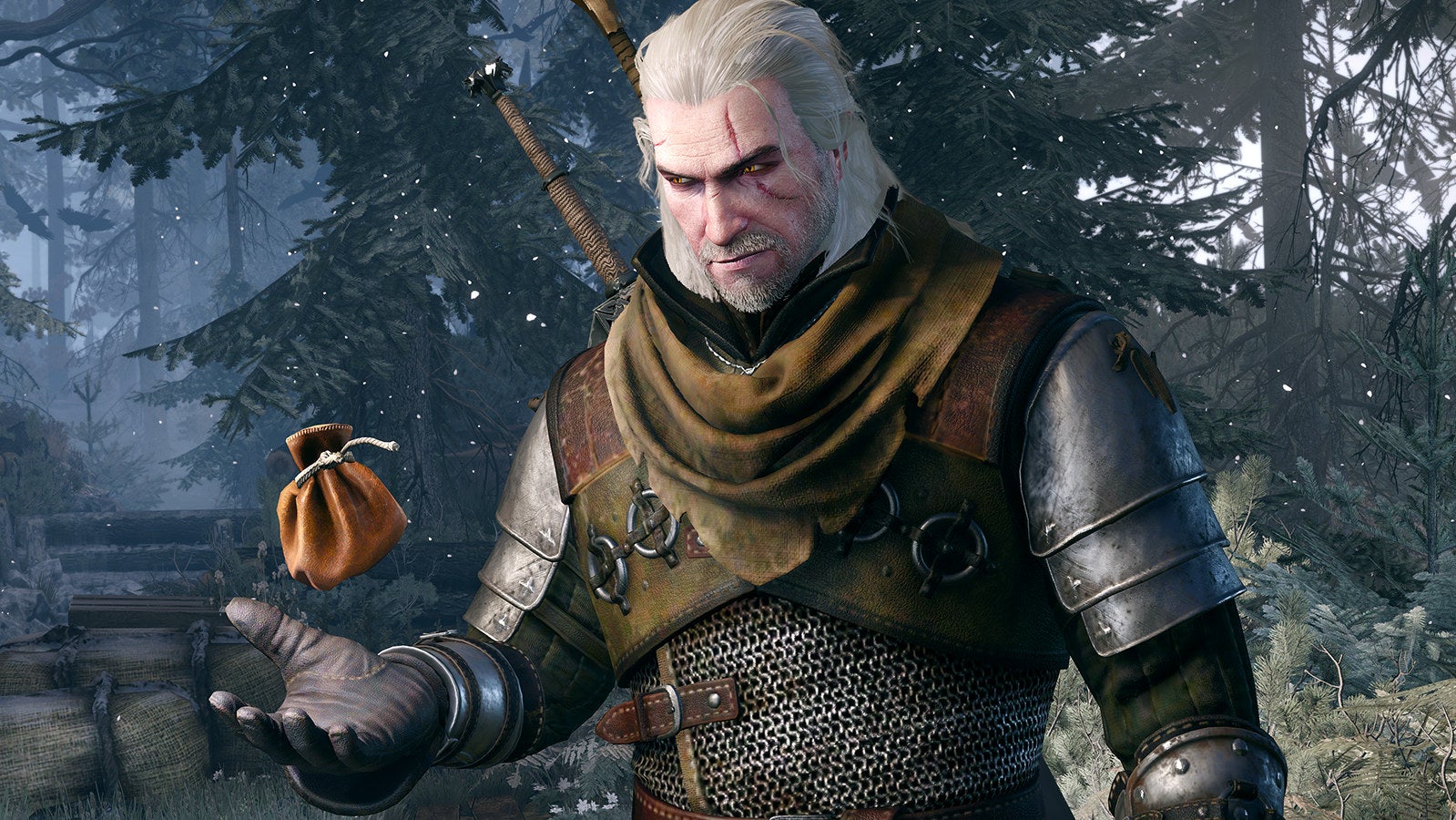
The Witcher 3 has fallen quite a way from last year’s list, but this gruff-voiced fantasy role-playing game set in a kingdom beset by war and big griffins is still a firm favourite in the RPS Treehouse. Your hero, Geralt of Rivia, is a sort of white-haired Wolverine of a parallel medieval era. He slurps potions and solves crimes. His occupation is “monster slayer” but he does a bit of world-saving on the side. Really, it is all an excuse to track down and find his adoptive daughter Ciri, and you spend a lot of the game ambling from town to town doing odd jobs and quests for friends (fairweather and otherwise) in an effort to discover more on her current whereabouts. Once upon a time, if you had asked us for the best fantasy RPG that sends its player on a cross-country adventure where their choices matter and new companions live or die on the back of your actions, you would have simply been handed whatever Dragon Age came to mind and told to “romance Alistair”. The Witcher 3 has long butchered and barbequed that sacred cow, becoming the fanciest third-person choose-your-own-adventure on PC.

Ooh, Half-Life isn’t on the list but Opposing Force is. This standalone expansion was developed by Gearbox as Valve were working on other things at the time, and the end result is a game that’s more or less the next best thing to Half-Life 2, a full five years before Valve returned to the series. The game dumps capable scientist Gordon Freeman to put you in the boots and body armour of U.S. Marine Adrian Shepherd instead, and really takes the meaning of expansion literally. It embraces the Half-Life formula of eschewing cutscenes in favour of scripted sequences, but gives you Marine pals, new aliens and their weapons – such as the shock roach, spore launcher, and barnacle grapple – and a fresh perspective on the perils of Black Mesa. While I love the original Half-Life dearly, I’d cheat on it with the edgier Opposing Force any day of the week. Sorry, Gords.
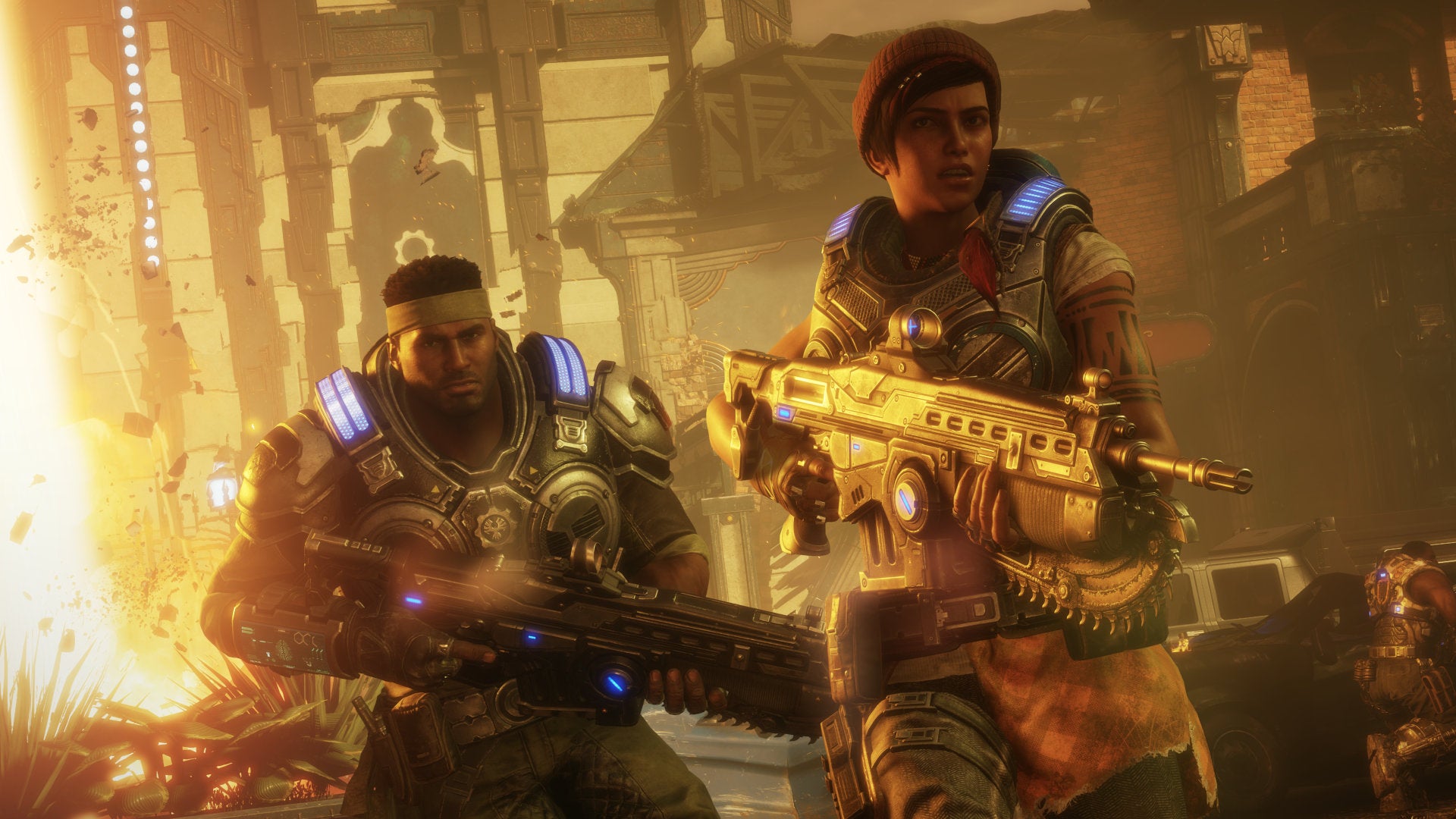
Gears 5 is peak third-person bombast, with beefy lads and lasses that fire beefy guns and get a bit emotional over a dozen or so hours. It might not share in the same survival-horror themes of the early Gears games, but it makes up for it with explosions and violence to wrest back control of a future-Earth swarming with muscular aliens. The game marries heft and movement beautifully, with your squad of beefcakes bashing into cover with delightful slaps and smooth transitions. There’s fabulous weight behind gibs, as you blast enemies into literal chunks or pop their heads with a squelch. Unabashed, epic violence with the gang – you just don’t get that anymore.
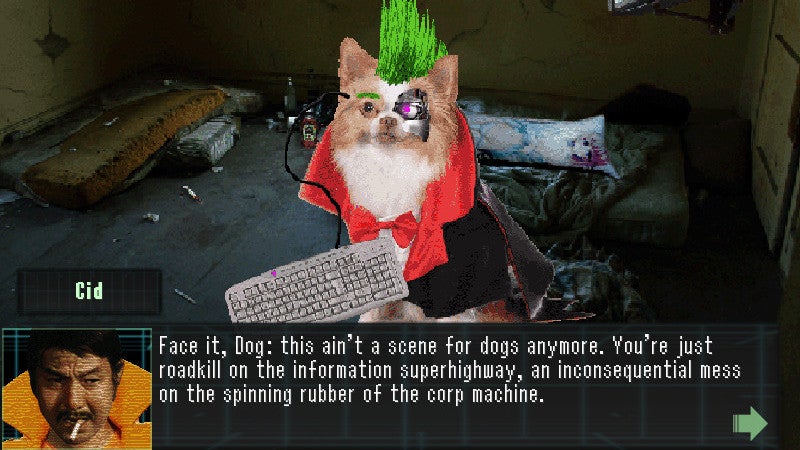
“This story is dedicated to all those otakus who fight against injustice and corruption every day of their lives,” begins Dog Of Dracula 2, lampooning the opening of Snatcher, a game written by Hideo Kojima while on a real Blade Runner trip. That’s how it goes in this cyberpunk visual novel: layers of pastiche, ripped assets, and jokes bent towards the absurd. Playing as a worn-out animal groomer with a serious sauce problem (not slang for a cool drug; literal sauce), we’re slammed through a world of anime, movies, snacks, corporate gamer culture, kewl hackers, and trash cyberpunk as we live in the shadow of the megacorps and contemplate sticking it to The Man. As a fan of trash cyberpunk, it’s such a joy, and just about every screen has a joke which makes me laugh.
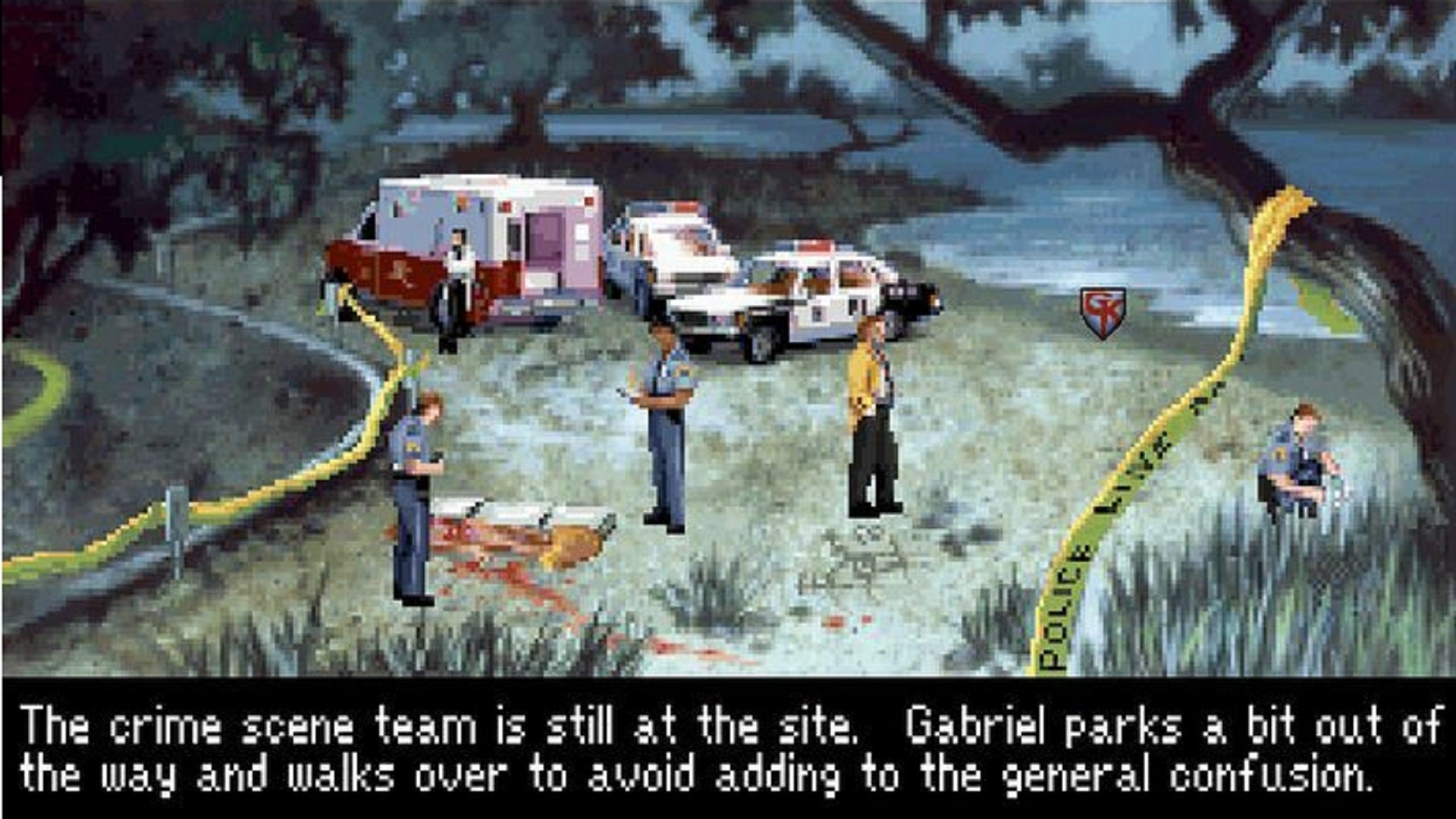
A quintessential example from the golden age of point and click adventure gaming, Gabriel Knight: Sins Of The Fathers is deservedly remembered for being one of those rare games that is truly outstanding across the board. The writing, voice acting, music, and puzzles are all top-notch; and even if the graphics betray the game’s origins in the early ’90s, who could deny the retro beauty of that pixel art? Never mind the fact that it spawned two sequels and a remake that received a more divisive reception; you’ll rarely find anyone with a bad word to say about the original. For many children of the era, this was one of our first really grown-up video games, featuring characters who felt like real people facing situations that were unflinchingly menacing and deeply gruesome. And, thankfully, GK1 is one of those rare titles that remains just as accessible now as it was 30 years ago.
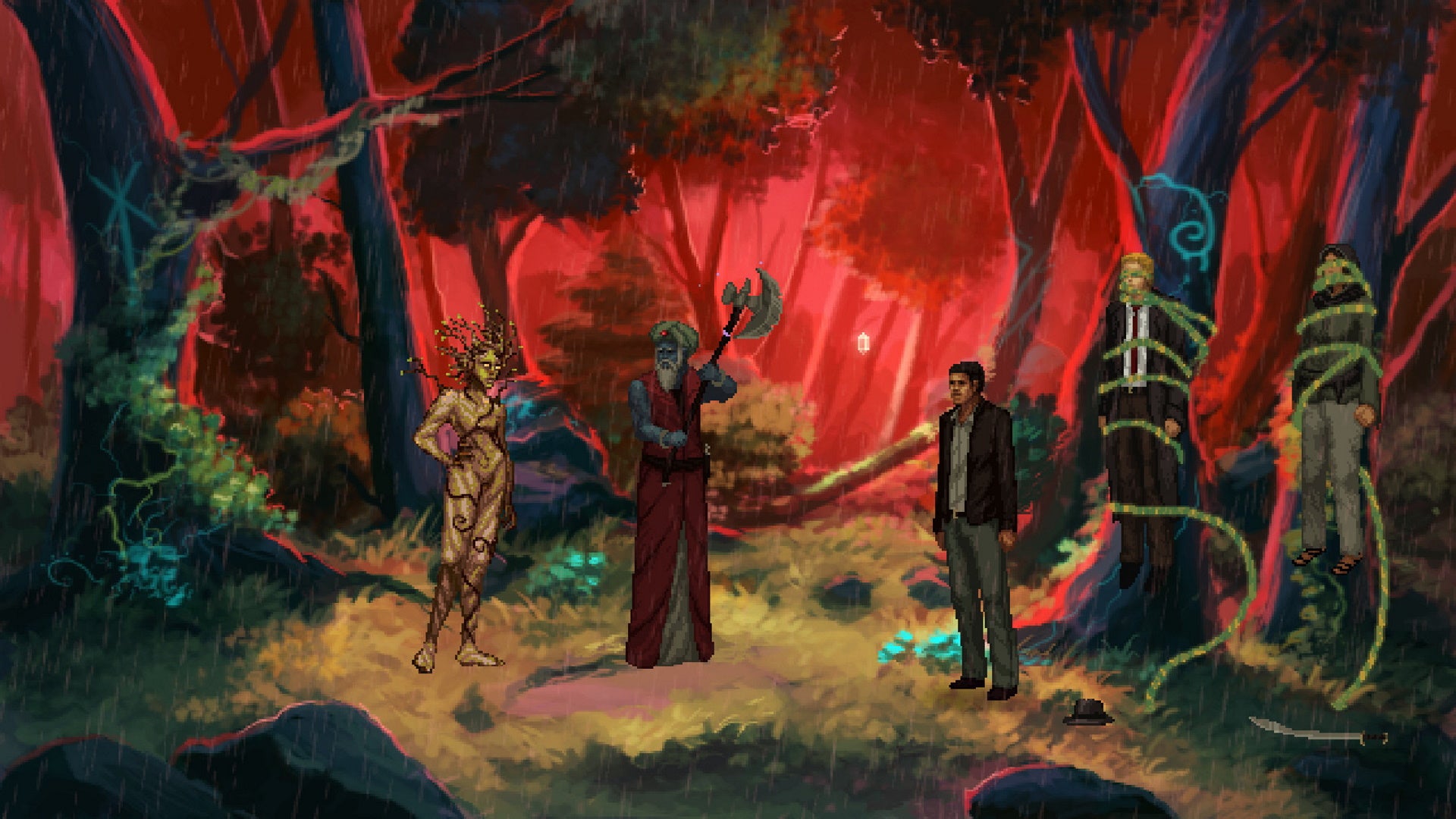
It’s true that the phrase “2D point and click adventure game” will be enough to bring some people out in a rash alone, but even they would have to add the qualifier “Unavowed is really good though, in fairness”. Wadjet Eye became known for their supernatural mysteries in gorgeous pixel art, and Unavowed really pours gasoline on that flame (this is a good metaphor because one of the characters is a fire mage). As the newest member of a squad of supernatural investigators, you go around fixing problems around the city relating to general otherworldly tomfoolery. You can take any two of the NPCs with you at a time, meaning levels can play out very differently if you take, for example, the ex-cop with a gun rather than the medium who can see ghosts. This effective layering of puzzles is wrapped up in an equally effective story, tying in the past and present of many of your new compatriots, as well as yourself. You start to genuinely care about these silly, lovable goons, and the conclusion is both satisfying and poignant. It’s an example of everything in adventure games done right.
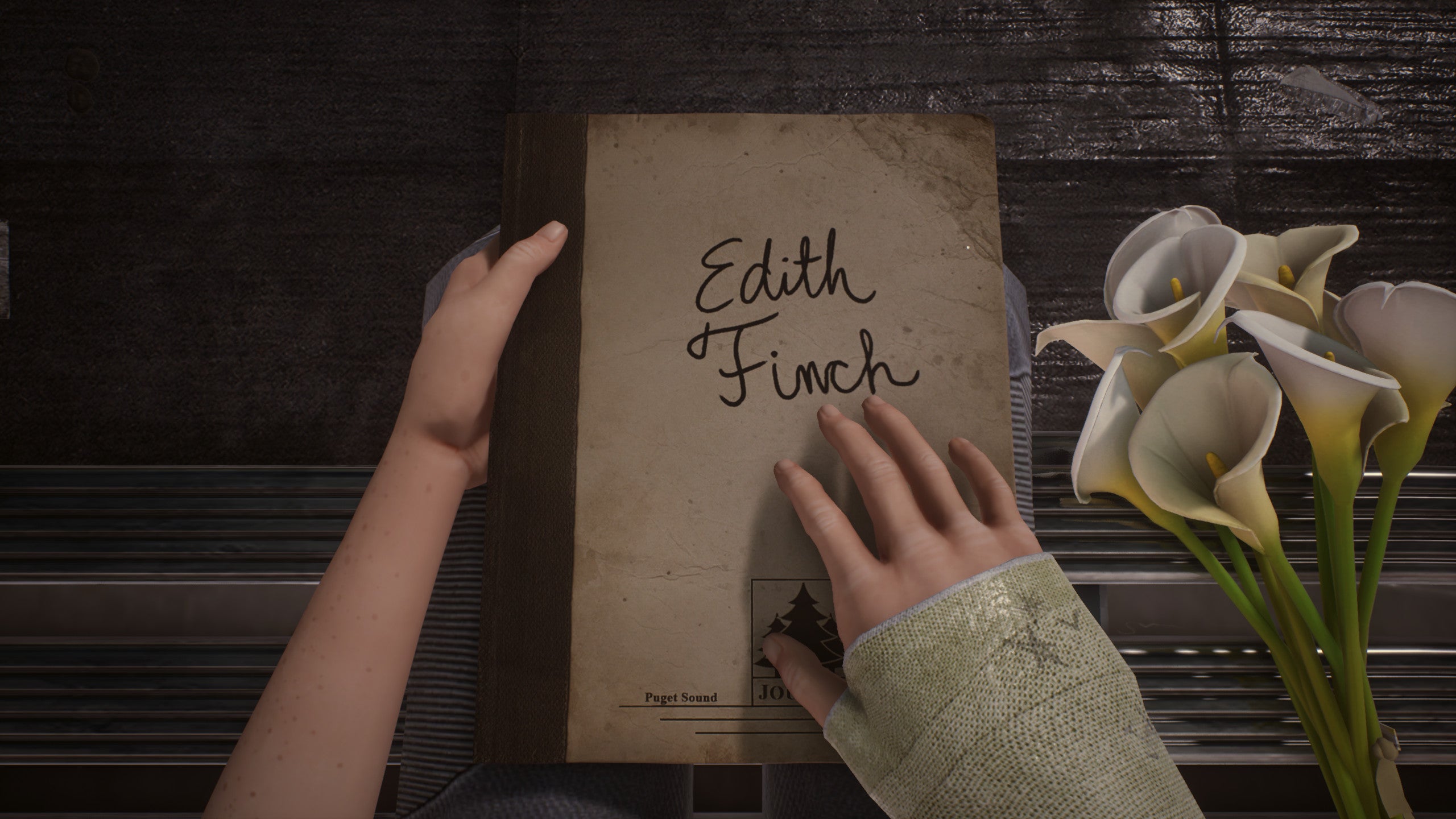
What Remains of Edith Finch is a powerhouse of storytelling, and I can guarantee snippets of its story will stay with you long after you’ve closed the game. This first-person adventure tells an anthology of strange tales about the deceased Finch family, and as the household’s last living member, Edith has returned to the Finch household to uncover the family’s hidden histories and how each of her relatives met their end. That sounds pretty morbid, but that’s because it is! But What Remains of Edith Finch is also full of moments of wonder, surprise and profound happiness masterfully told through careful art direction. As Edith discovers the past of each family member, you’re transported directly into that person’s headspace at a particular moment in their lives, putting you at the centre of each of their tales. If you’re a fan of games that experiment with new ways of storytelling and can take the occasional emotional gut-punch, you’ve gotta play this game.
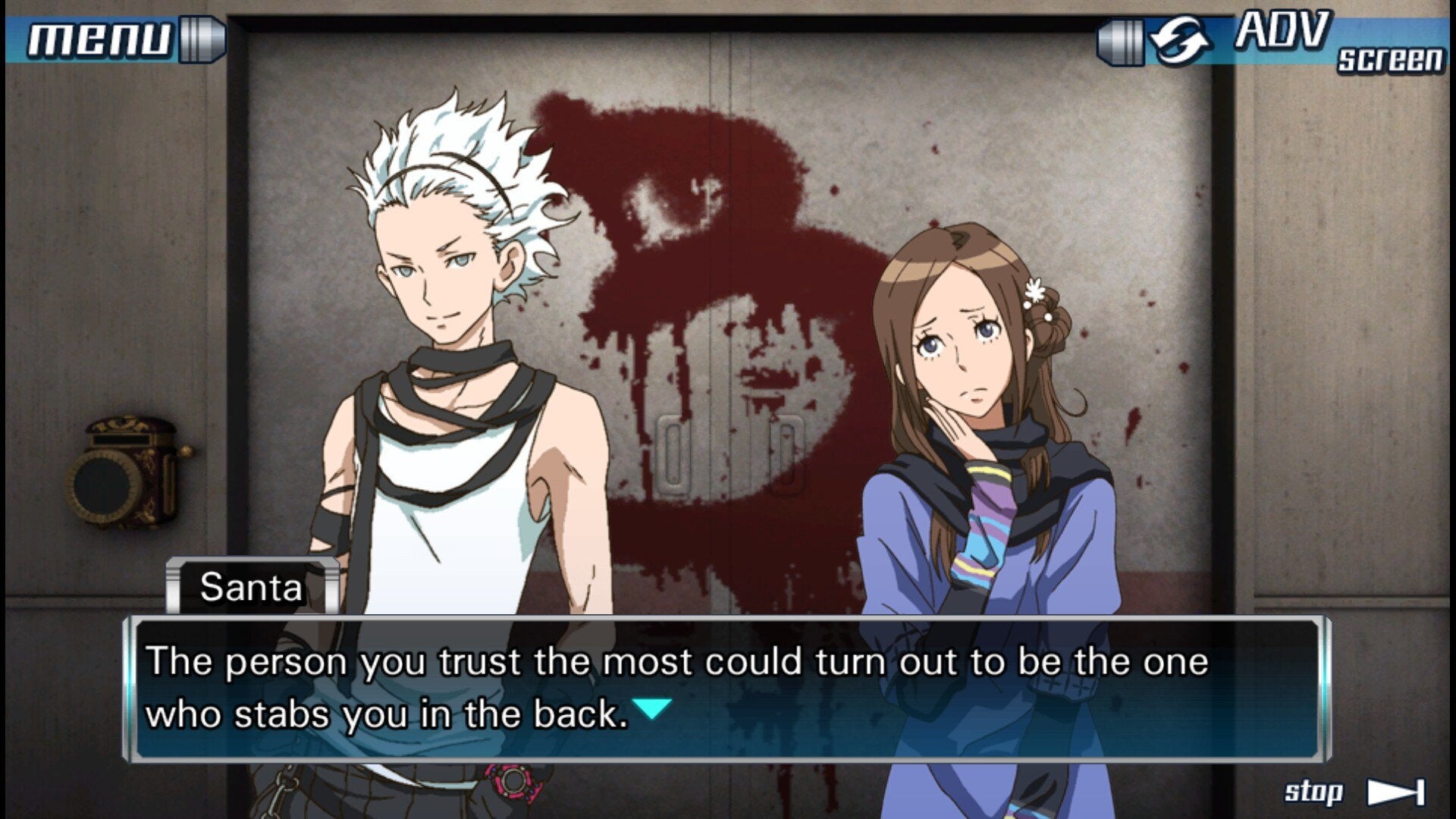
Technically two games in one, Zero Escape: The Nonary Games sees the excellent visual novels 999: Nine Hours, Nine Persons, Nine Doors and Virtue’s Last Reward come together in a grisly, murderous double-pack. With their fiendish puzzles and mind-bending plots, the Zero Escape games are hands down one of the best visual series you can play on PC right now. To say too much about the story would only spoil its many surprises, but each game’s respective melting pot of fraught personalities, bitter betrayal and tentative alliances is thrilling, gripping stuff. What’s truly brilliant about Zero Escape, however, is the way it turns that classic visual novel trope of multiple playthroughs on its head, as the idea of jumping back in time and making different decisions based on what you’ve just experienced is built straight into the game’s story. And it doesn’t always play out like you might expect, either. If you like games that give you plenty to chew over long after the credits have rolled, Zero Escape is the thing for you.
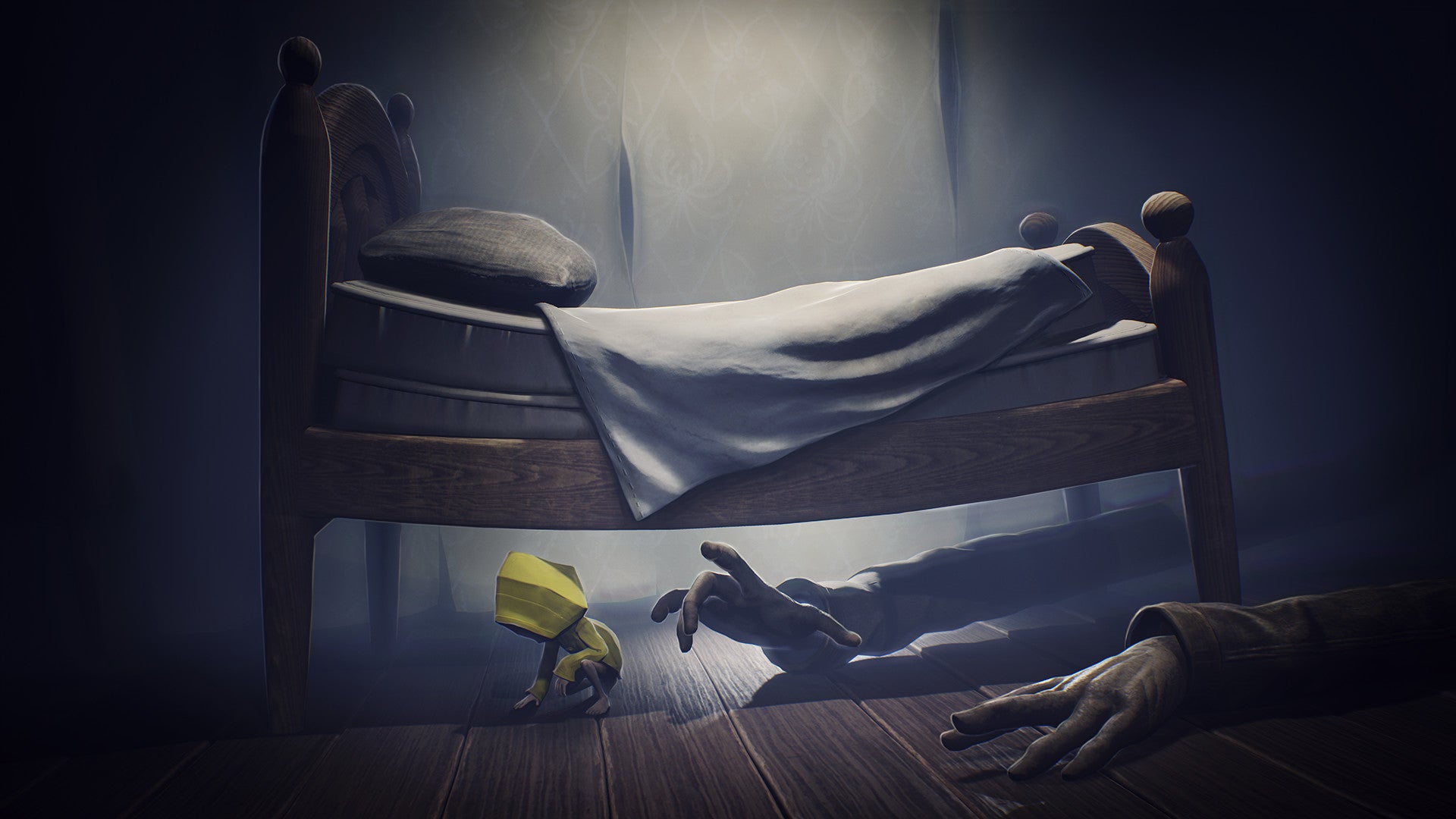
Tarsier’s side-scrolling toybox of terrors is a great puzzle platformer, for sure. But it’s also an exquisite little horror game. Watching poor tiny Six, in her yellow coat that’s too big for her, crawl through the bowels of a horrible ship of monsters is an unforgettable experience. People talk about the monsters that chase you: grotesque, giant, long limbed, the uncanny twisting of angry grown-ups as glimpsed by a scared child. And yeah, they’re very good. But what you’ve really got to watch out for is the level and sound design. The sequel is very good, too, but it doesn’t have a room full of discarded shoes, knocking together with leathery squeaks and hollow clatters. Why… why are there so many shoes? Why are they here? Who decided to keep them? And what, exactly, is chasing you through them…?
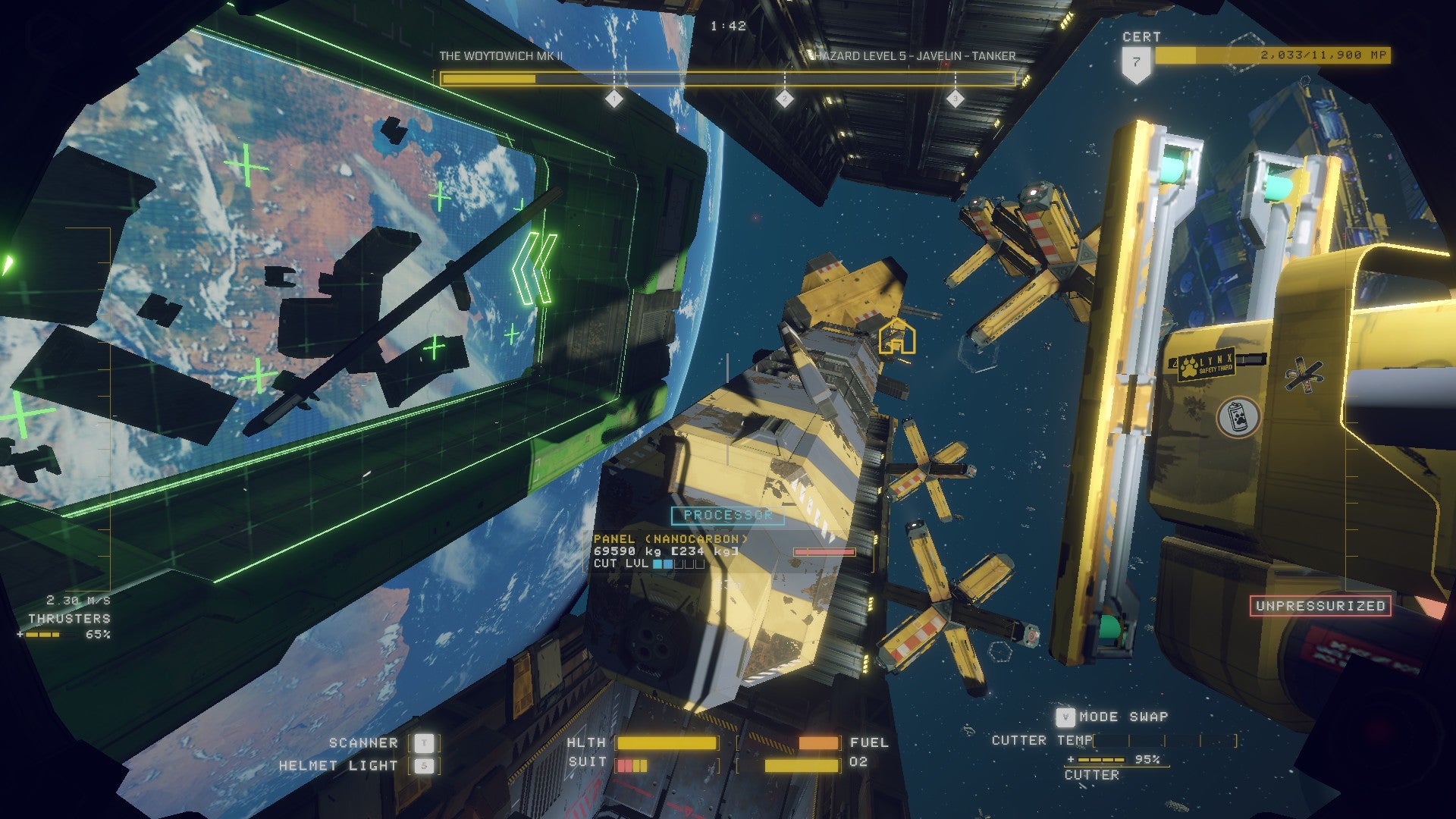
The life of a shipbreaker isn’t easy. It’s their job to tear apart hulking space cruisers, harvesting their materials to pay off an astronomical debt to their own employers. Not only do they have limited amounts of oxygen to contend with, but wrecks themselves are packed with hazards. One misplaced laser slice could result in a catastrophic explosion that atomises both them and their precious haul. Still, despite the constant threat of death, shipbreaking doesn’t seem so bad. Methodically separating metal panels and disconnecting fuel lines is a fairly relaxing way to spend an afternoon. Hardspace is mundane in that compelling way only the best games about work can be. Pop on a podcast and get scrapping. Hardspace: Shipbreaker is an absolute delight.
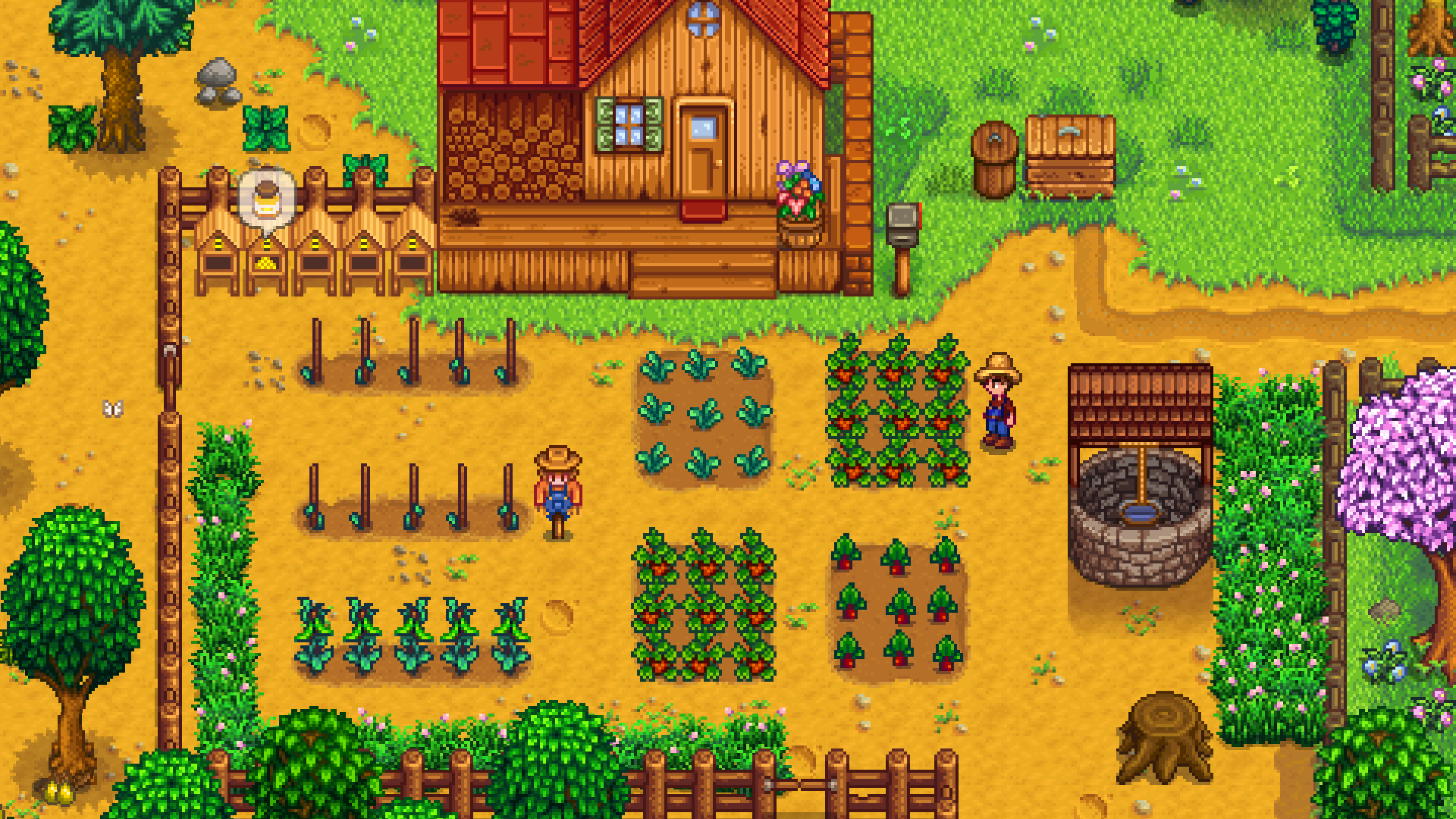
Stardew is a farming simulator with a whole life attached to it. You can happily spend every day growing carrots or wheat or flowers on your outskirts farm by this pixelly village, ambling into town once in a while to sell your beetroots and buy seeds for next season. But you won’t. You’ll go fishing on the pier for a whole week. You’ll explore caves and meet some slimes. You’ll hand a homemade pie to your favourite neighbour and watch their face distort with polite yet unimpressed acceptance. It may be a spiritual successor to Harvest Moon, but the density of stuff to do in this little hamlet surpasses anything your nostalgic memory of those older games can manage. You can rebuild a community centre with the help of some magical pipsqueaks. You can start a one-person jam industry. You can stick your nose in the dramas and problems of the villagers. You can woo and marry that pie-hating neighbour, and have a baby with them who will sit in the house all day and do nothing while you toil the earth, what an ingrate. Stardew Valley offers its players low-key control over a small patch of land. It is less a power trip and more the manifestation of that simple life that so many of us, at some point, wish we could have.
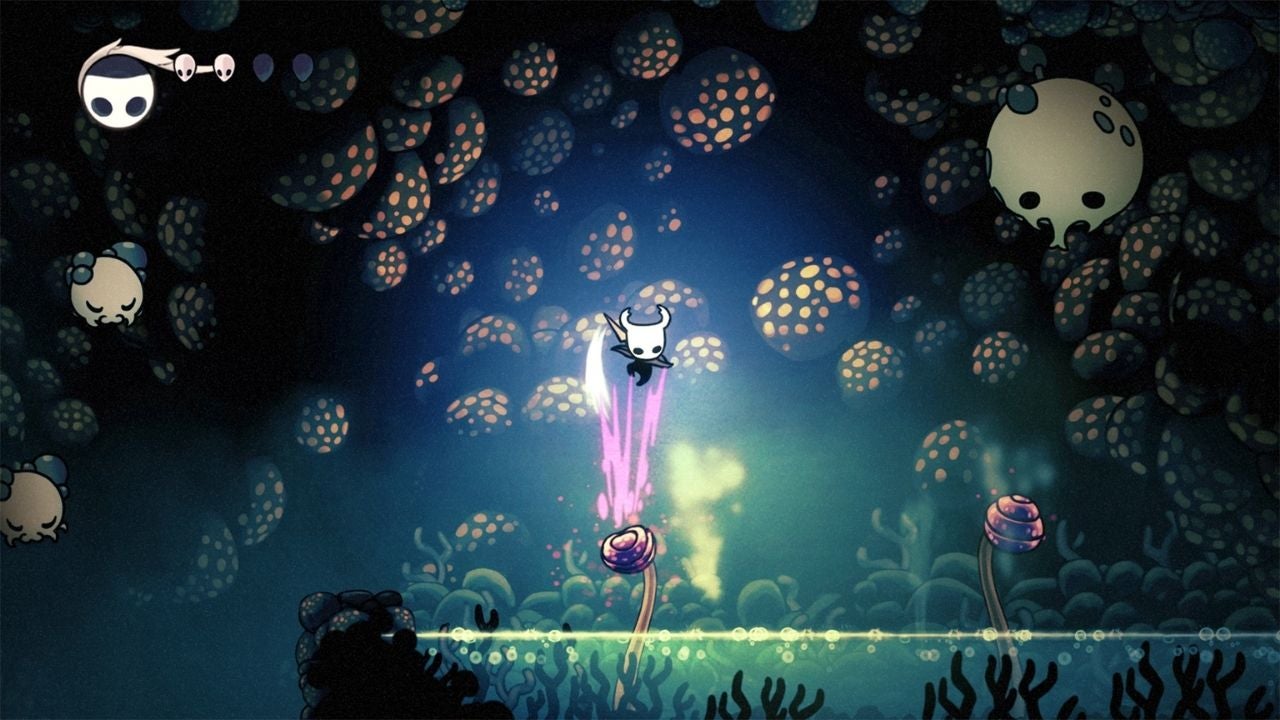
An action game that’s anything but hollow, this is a subterranean world full of angry wasps and skull-faced beetles waiting to bite and sting. Hollow Knight sprawls out in every direction, a modern mash-up of Metroid and Dark Souls. The insects of Hallownest are grim-faced, mysterious and adorable all at the same time. But within its cartoon gothic lies a tough game of death and rebirth, unlockable skills, boss battles with set patterns of attack, and the satisfying feeling of learning your way around a cavernous, dim world with its own bug-sized culture. Just look at this map, and tell me you aren’t intrigued.
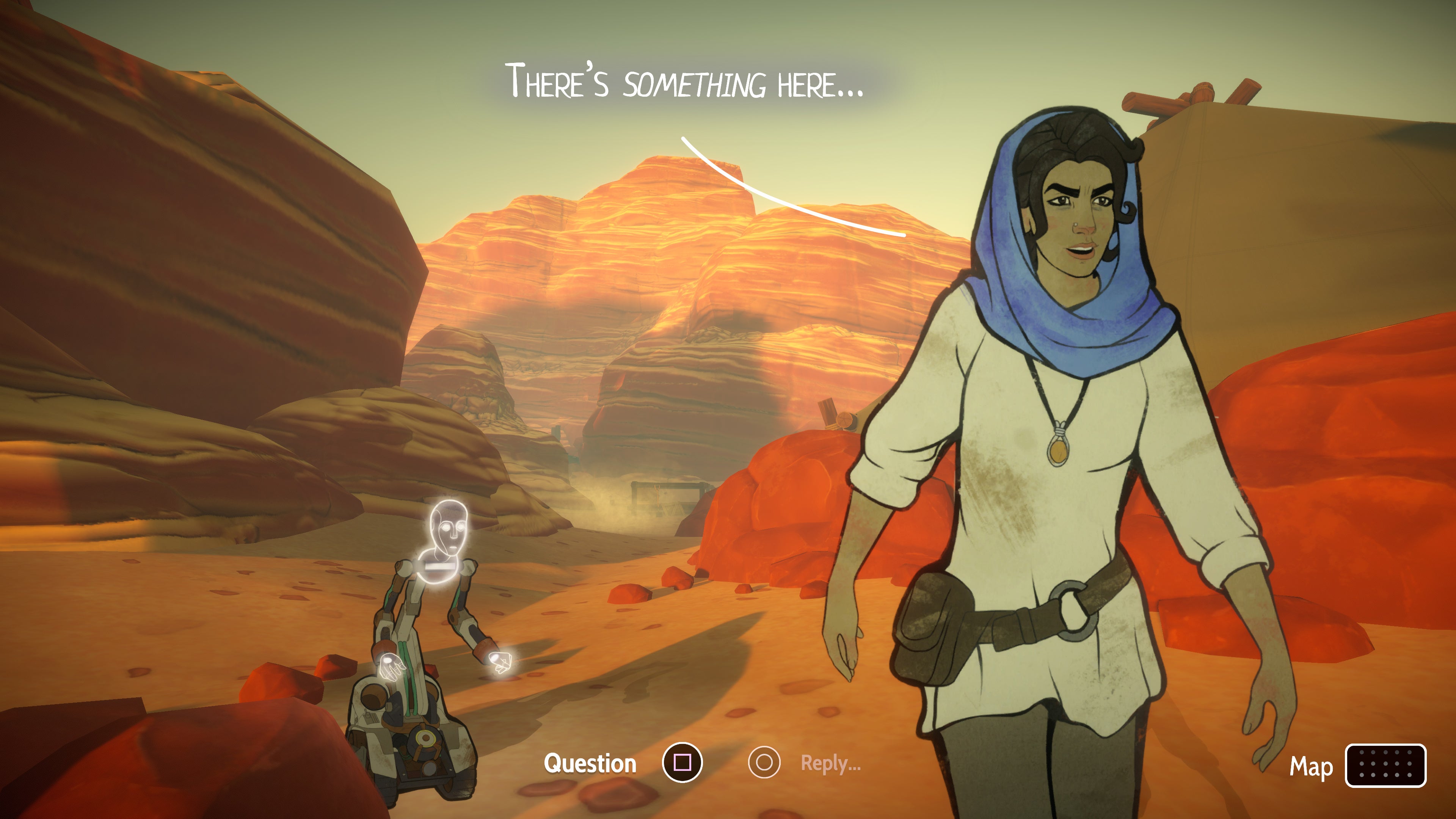
This adventure game will teach you how to read again. Granted, it won’t be in English, or any language used by the people of earth, but Ancient. That’s the hieroglyphic script used by a long-dead civilisation in Heaven’s Vault, and it’s your job as scholar and cosmic sailor Aliyah Elasra to reconstruct the history of “The Nebula” by deciphering this long lost lingo. This is no mere gimmick. An entire language has been created especially for you to scratch your chin over. If that sounds hard, don’t worry. The game massages your guesswork if you’re too far off the mark, but never so much that it takes the satisfaction away. It doesn’t just make you feel clever, like when detective stories guide you to a solution. It lets you really be clever. Discovering what makes one word a verb and another an adjective is just one early revelation waiting for those who go all in on this constructed fantasy language. There are so many other joyful discoveries. Every compound word is made of smaller components that come together in their own logical way. The word for “star” is literally “high bright light thing”. Tenses have their own defining symbols. And figuring out how the Ancients used to write big numbers is a particular head scratcher with a fascinating solution.
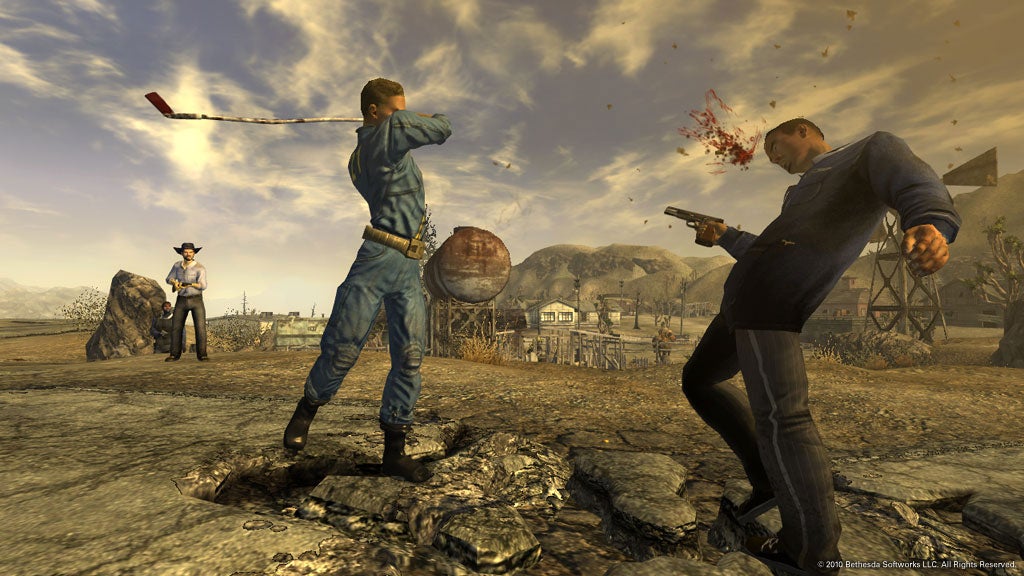
You’ve been shot in the head. But when has that ever stopped you? The nuclear wasteland has been traipsed upon by many a Fallout game, but New Vegas is the one with heart. Essentially a road trip with quite a lot of detours, this first-person shooter RPG entrusts you with the future of Nevada, including a revived city of gamblers and rogues. Highlights on this tour of the radioactive desert include: being shot at by a sniper embedded in a dinosaur’s mouth, finding a bunch of people crucified by men dressed as Roman centurions, cracking the skull of the blazer-wearing scumbag who put a bullet in your brain and left you in a ditch. This makes it sound all action. In reality, much of New Vegas is spent jabbering. Thanks to the complex branching storytelling that other Fallout games neglected, talking your way through some conflicts is a viable strategy. See for yourself, postie. Pay a visit to the megalomaniac who has styled himself after Caesar, and try to play him off against the army of prissy Californian soldier boys. It’ll probably work out.
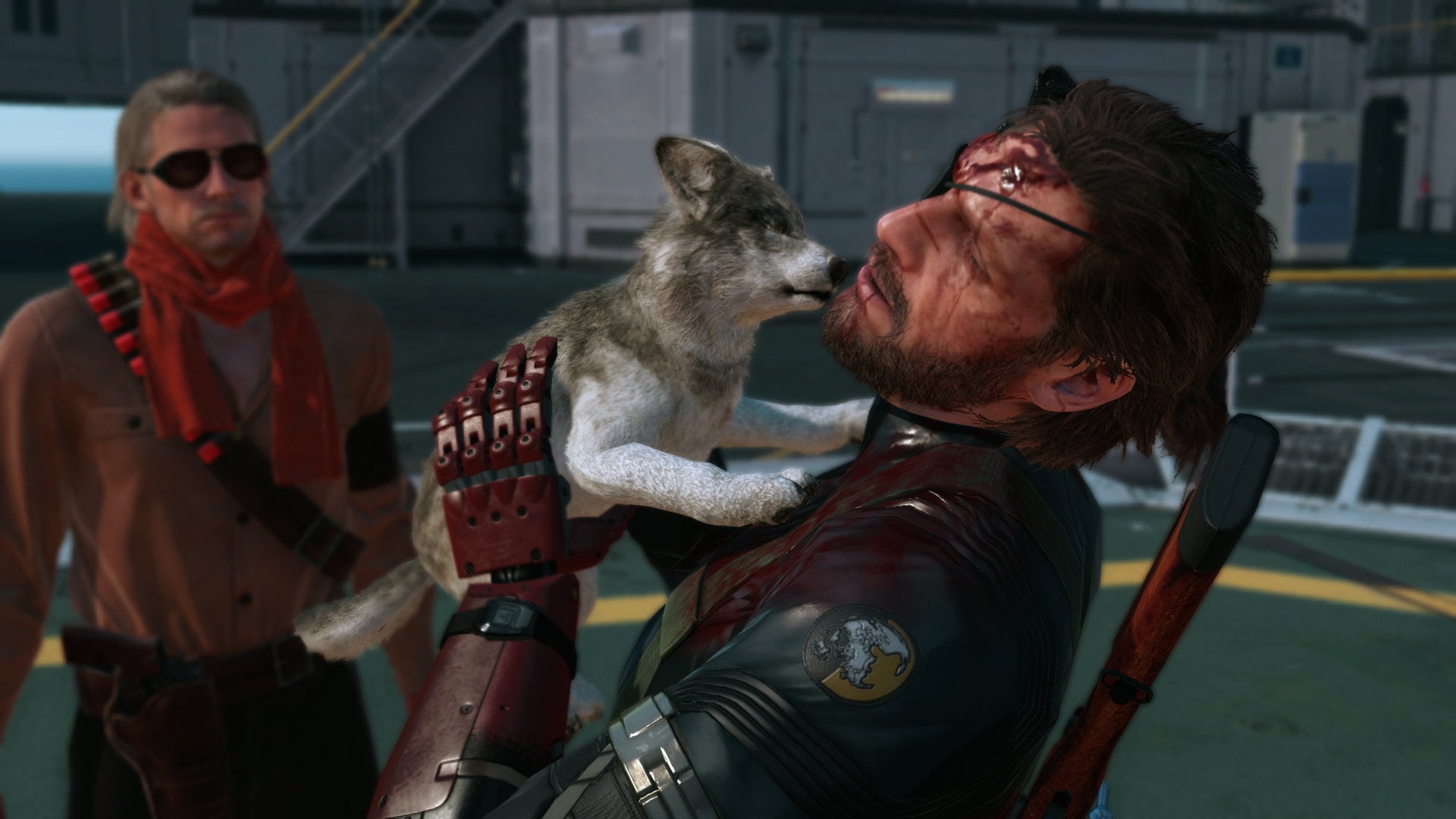
Attempting to pick through the conspiratorial history of Metal Gear’s universe is a mission even the most leathery of special ops agents would refuse, but MGS V: The Phantom Pain makes it all worthwhile. This is a glorious third-person muckabout not because of the winding nonsense happening on-screen between levels (well, maybe a little bit) but rather because of the wide open world. You have the carte blanche of a lone soldier operating behind enemy lines, under the orders of no government. You can deploy inflatable dummies on the road in Afghanistan and lie in the sand nearby until a truck hammers the brakes and the drivers get out to apprehend the balloon man. Then you can steal the truck and drive it into the desert. You can run back and tranquilise the drivers, and take them into the desert too, and wake them up surrounded by a circle of more inflatable dummies. No, this has nothing to do with your mission. You’re supposed to be infiltrating an outpost and bringing a hostage to safety. But look at these idiots. This is much more fun.
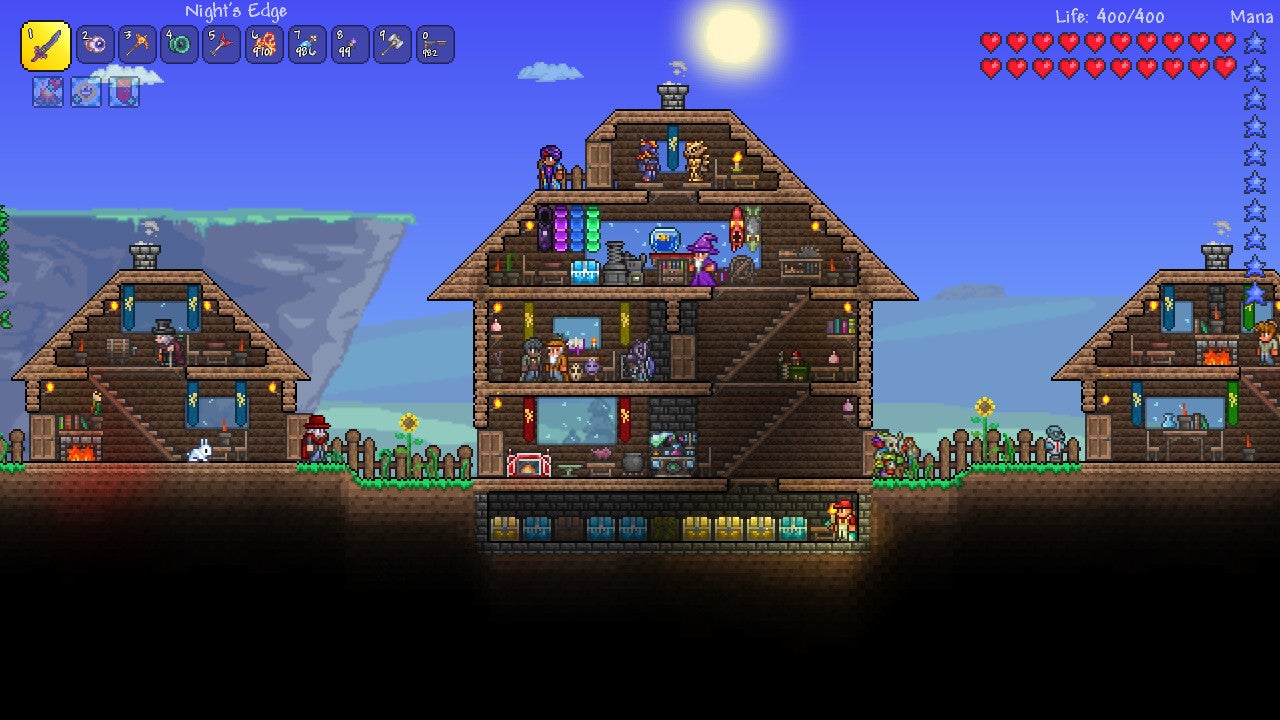
Terraria is Minecraft without the fussy third dimension. You can craft your way to a stunning cabin in the wilds of its lushest forests, or you can dig a nice troglodyte’s hole in the ground and make it just as cosy. This is all about homemaking, and I don’t mean in the traditional “cook dinner and do some sewing sense”. No, it’s about literally creating yourself a home, a place to call your own among the zombies and creepy things that lurk in the ground beneath. Oh, you’ll be going down there, make no mistake. You didn’t think you’d be crafting without the mining, did you? Don’t worry. The randomly generated 2D world can be as forgiving or nasty as you want to set it.
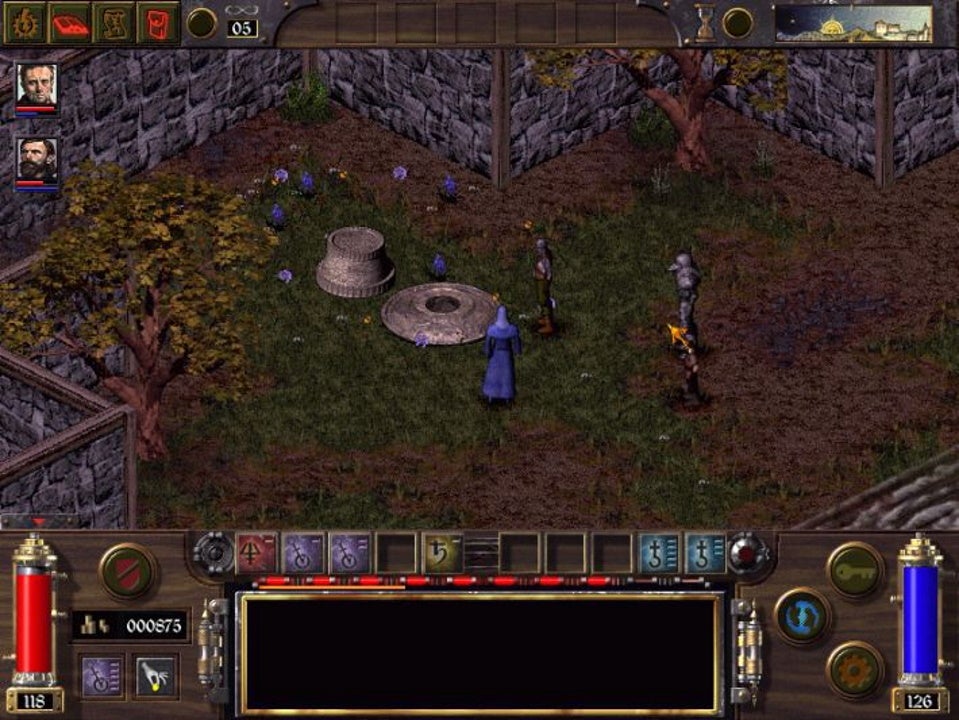
Arcanum to its friends (of which there are many) is an isometric, story-heavy cRPG with a lot of interweaving quests and weirdness. Think original Fallout (this came from a lot of the same core team) and you’re in the right area. Except Arcanum is set in a fantasy word of orcs and elves, caught in the midst of an industrial revolution. Magic and technology are also incompatible, often misfiring or bricking around one another. You could be anything from a long-striding gunslinger to a battle mage, but expect to have wildly different experiences based on how you build your character. Arcanum is a complex world, and the powers of science and sorcery aren’t the only things you’ll have to deal with. As is the way of things, you become responsible for saving this weird, lush world, and in the process you’ll have the chance to solve a demonic murder mystery, engage in some art theft, make shady business deals, travel to an island prison colony, and annoy some elves. Arcanum gives you few hints and a lot of freedom, and it’s still a rich delight to play today.
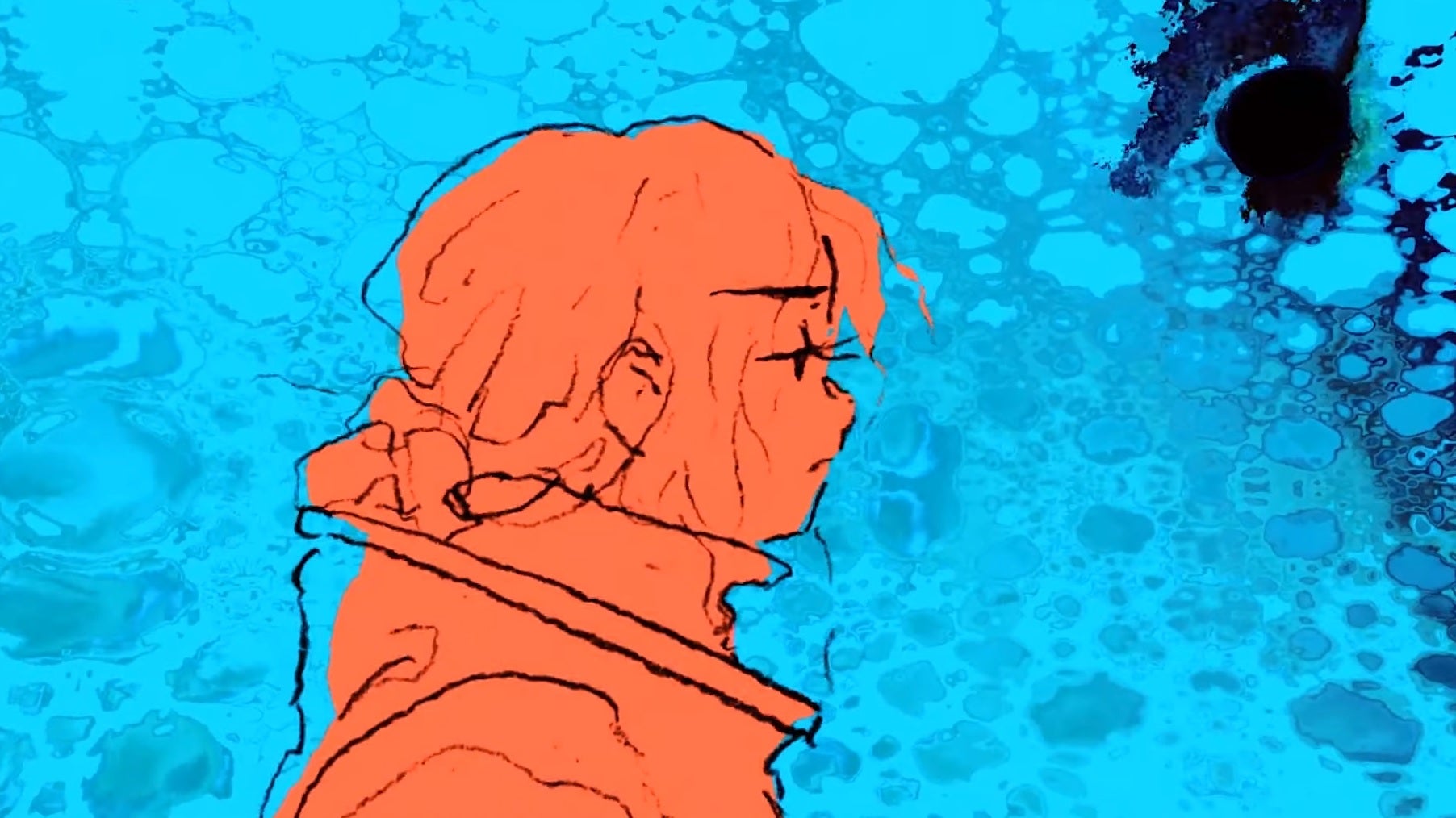
If Found… remains one of the best visual novels on PC. Dreamfeel’s coming-of-age story follows Kasio, a young trans woman who is returning to her small Irish hometown 1993. Taking place within a series of diary entries, the only way to read this story is to erase what’s on screen. Using your mouse an eraser, you can wipe away the diary’s words, sketches, and scribbles to reveal more entries, acting as a transition to get from one scene to the next. Erasing someone’s written thoughts and feelings at first feels destructive but it quickly starts to feel like a force for healing. You’re essentially destroying the past to make room for a new beginning and that’s something that really touched me the first time I played. If Found… is ultimately a story about being young, queer, and trying to get your shit together that’s both beautifully raw and gut-wrenching authentic.
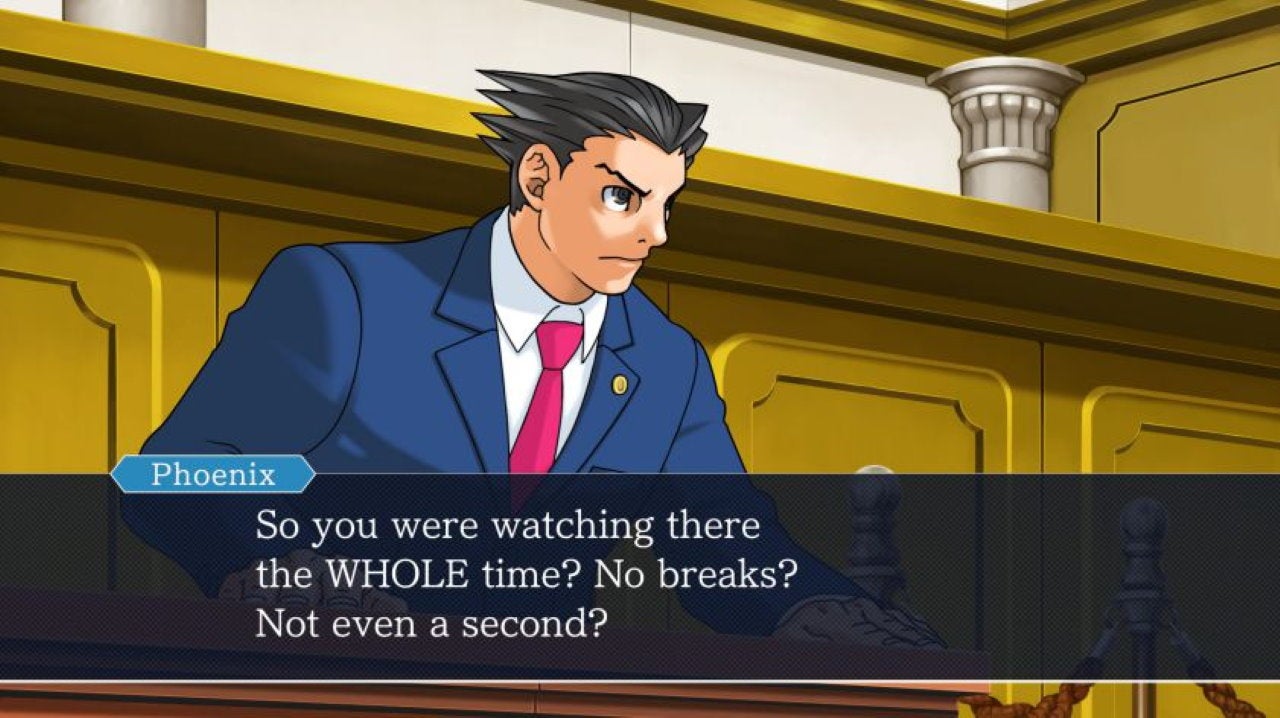
Keeping with the visual novel theme for a minute, Capcom’s courtroom lawyer ’em up series of Phoenix Wright games are another high point for this most clickable of genres – and the Ace Attorney Trilogy gives us definitive proof of that on PC. Bundling HD versions of the first three games of the series into one, finger-waving treat, the Ace Attorney Trilogy sees newbie lawyer Phoenix Wright fight for the lives of his clients, gathering clues to prove their innocence and finding flaws in witness testimony with a big bellowing cry of “OBJECTION!” All three games have devilishly good mysteries at the heart of them, and courtroom scenes are a real thrill from start to finish – especially when the climactic third game ties them all together. You could quite easily start with its more recent, flashier prequel, The Great Ace Attorney Chronicles, if you prefer – they both hold up as equally brilliant standalone experiences that don’t require any previous knowledge in order to enjoy – but for us, the Ace Attorney Trilogy shows Wright in his best and purest form. And that, my friends, is the honest to goddamn truth.
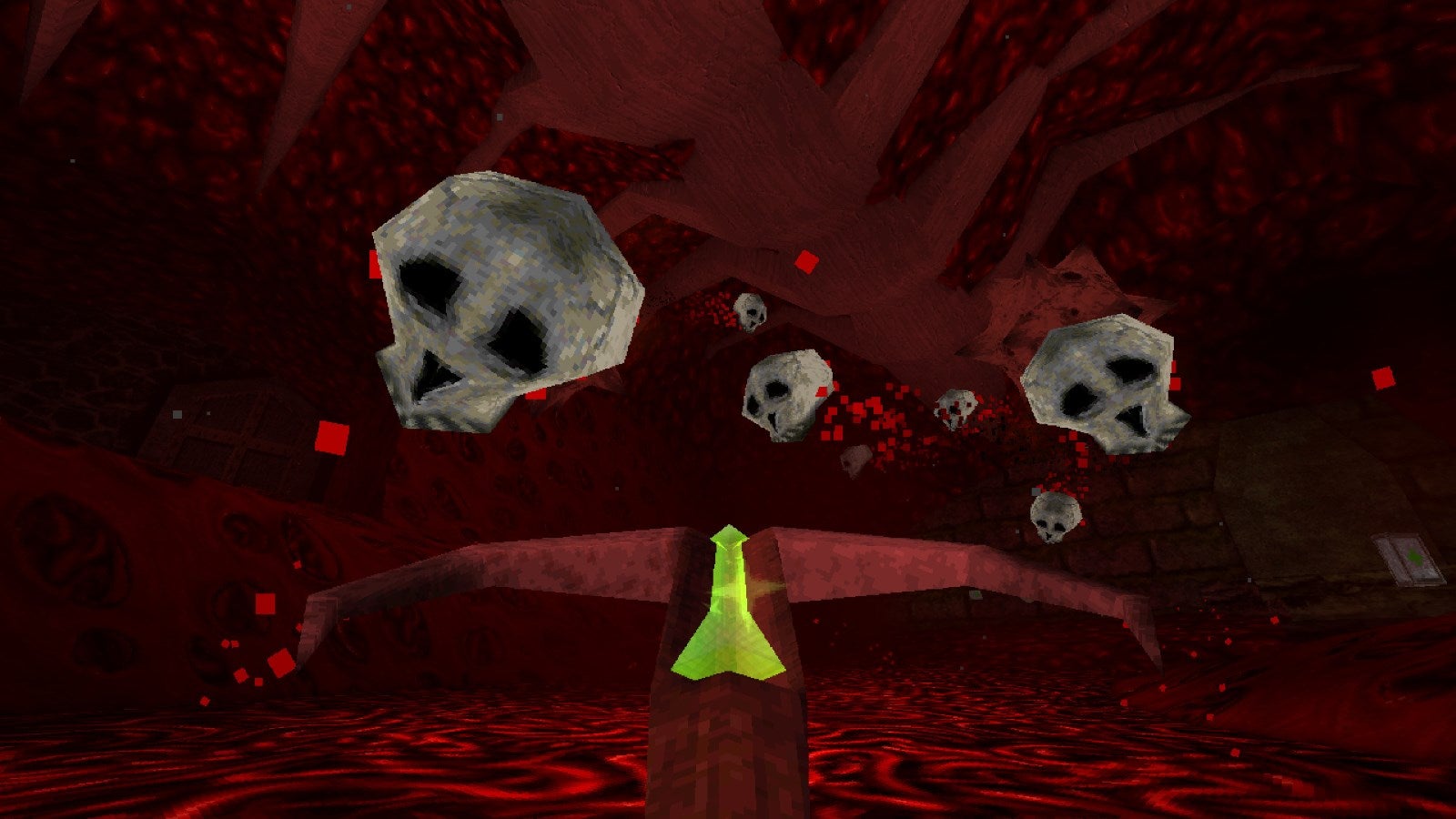
”Kill the intruder”. Dusk doesn’t do anything by half-measures, and its introduction is no exception. Awakening in a grungy basement, with nothing but a pair of rusty sickles to your name, you are immediately attacked by three chainsaw-wielding psychopaths with bags over their heads. From there, Dusk just keeps escalating further. Dilapidated farmhouses give way to decaying cities, haunted military bases and floating cathedrals to eldritchian deities. Yeah. Dusk goes places. Your journey is a rollercoaster of blood, bullets and nightmarish monsters. Weapons are snappy and chewy, an arsenal of powerful firearms that turn most of your adversaries into a pile of gooey gibs. Dusk is the game that influenced the current wave of retro-inspired FPS games, and for good reason. It’s still the best of the bunch.
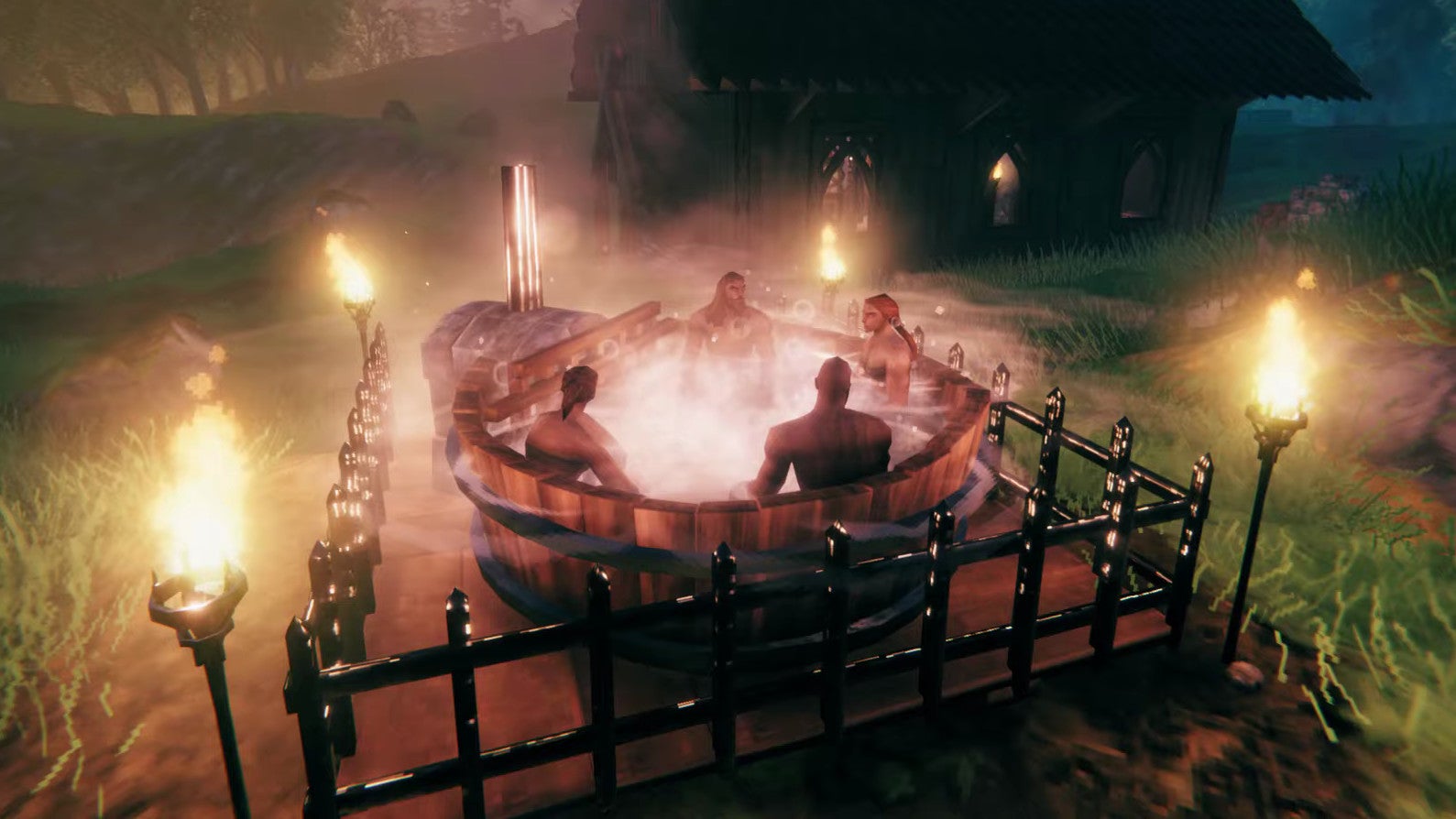
Valheim has come the closest to capturing the sense of wonder and discovery of early days Minecraft – an incredible feat considering Minecraft was something entirely new at the time. Valheim doesn’t innovate on the formula much, but it still has a host of lovely and engrossing simulation systems, such as wooden buildings that get wet in the rain, smoke that collects in rooms without a chimney, and – most dangerous of all – giant tree trunks that obey gravity and roll down slopes like unstoppable cylinders of death once chopped.
The best thing about this stylish Norse-inspired survival game is exploring its procedurally generated worlds. The worlds aren’t infinite, but they are gigantic, and the one real quest – to summon and slay the various bosses found across this mystical world – sends you very far afield at times. The joy of packing up your things, crafting a longship, and setting sail across rough seas on a long voyage across Sea Serpent-infested waters is unforgettable, and the thing that will keep us coming back to Valheim again and again.
That’s the end of Part One! What do you think of this year’s RPS 100 so far? Let us know in the comments below, and be sure to check back on Wednesday for Part Two, where we’ll be counting down #50-1.
